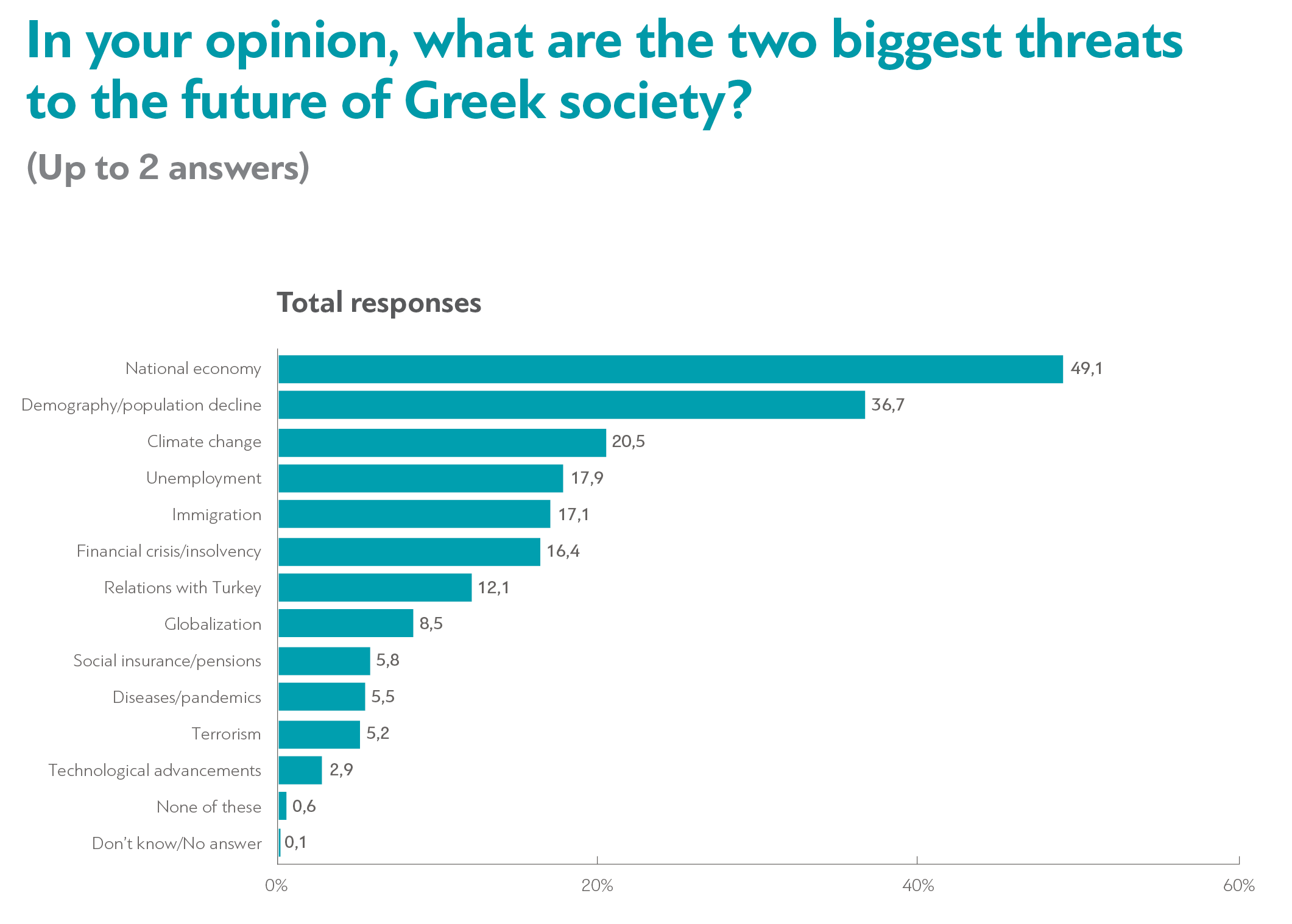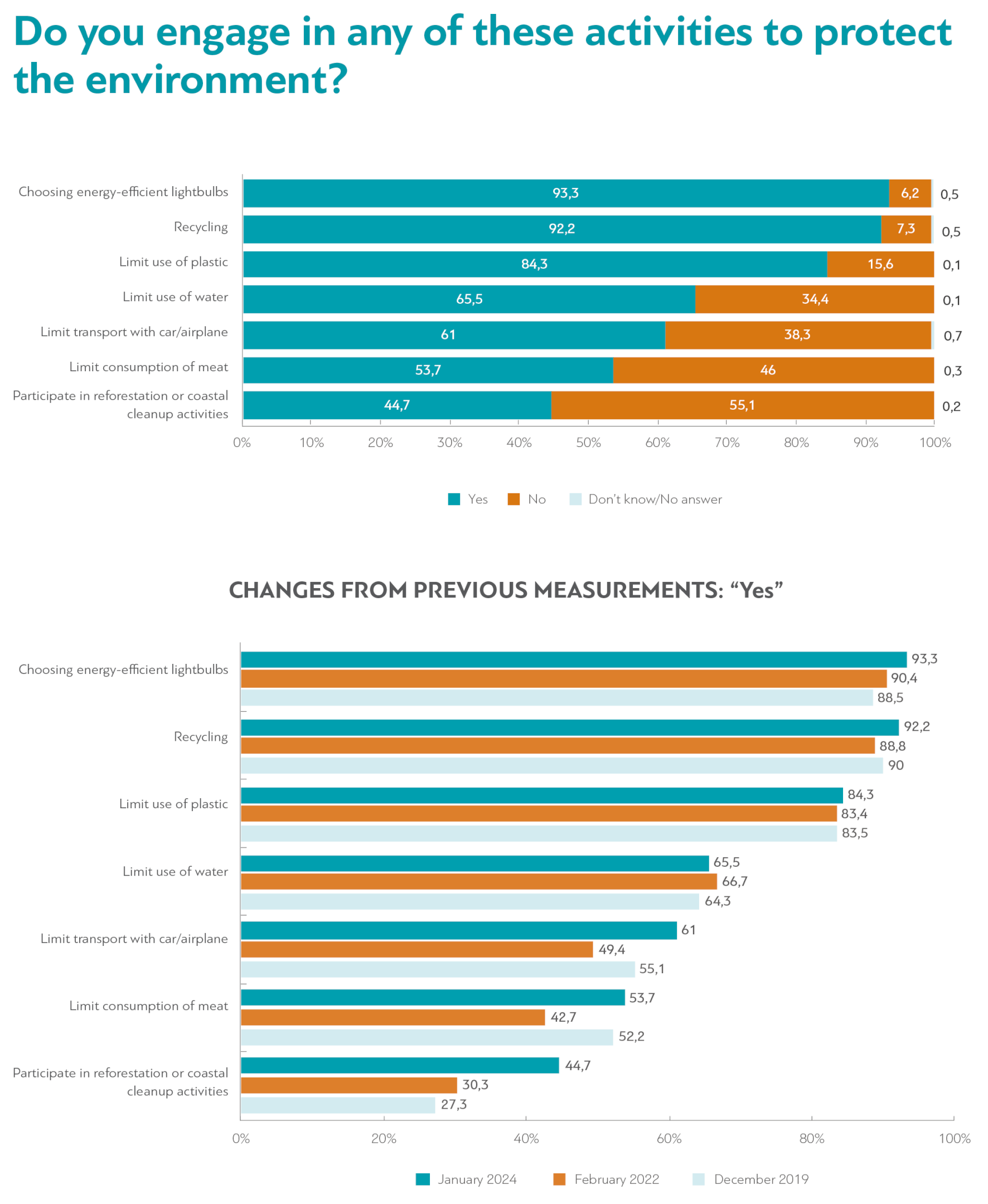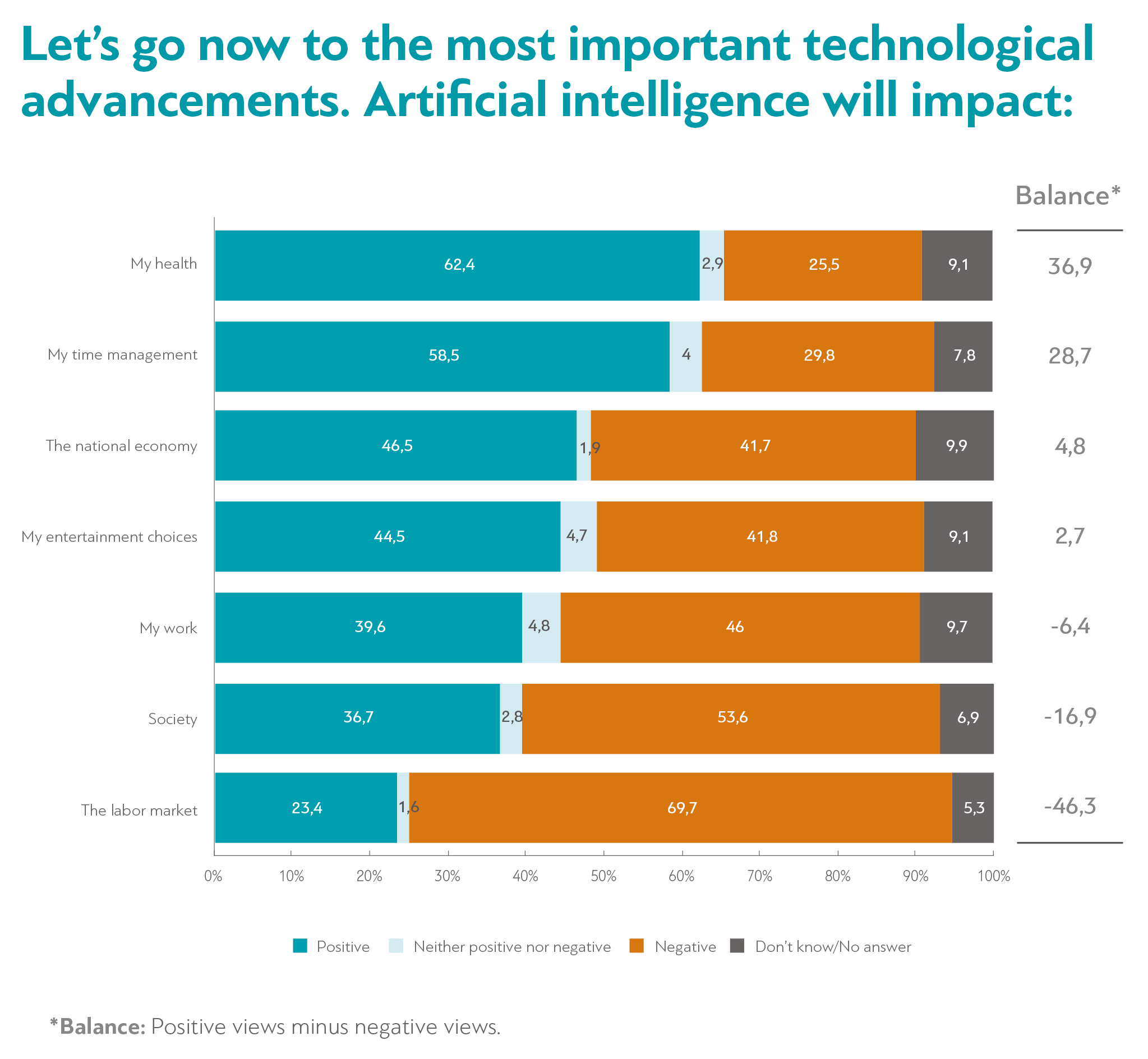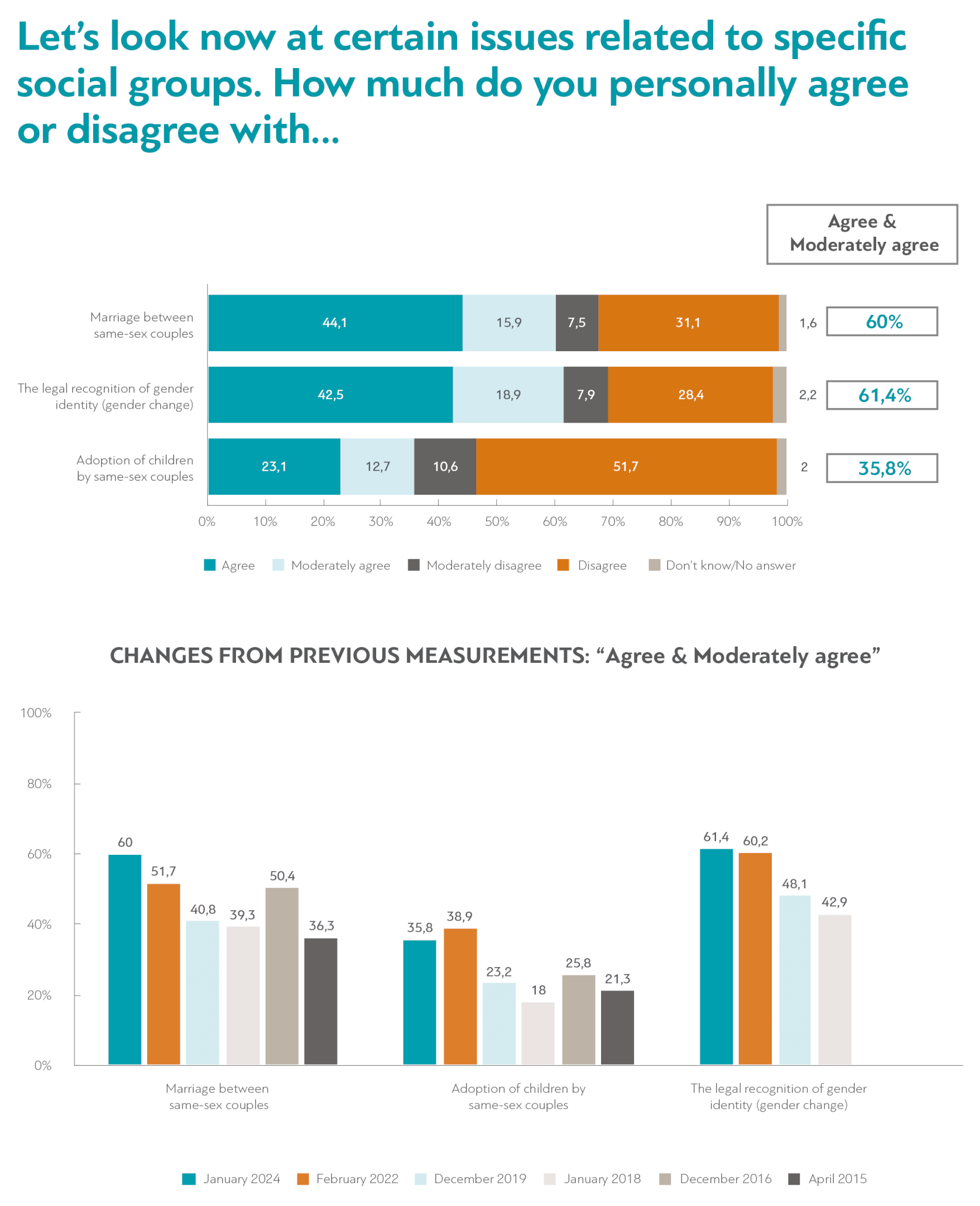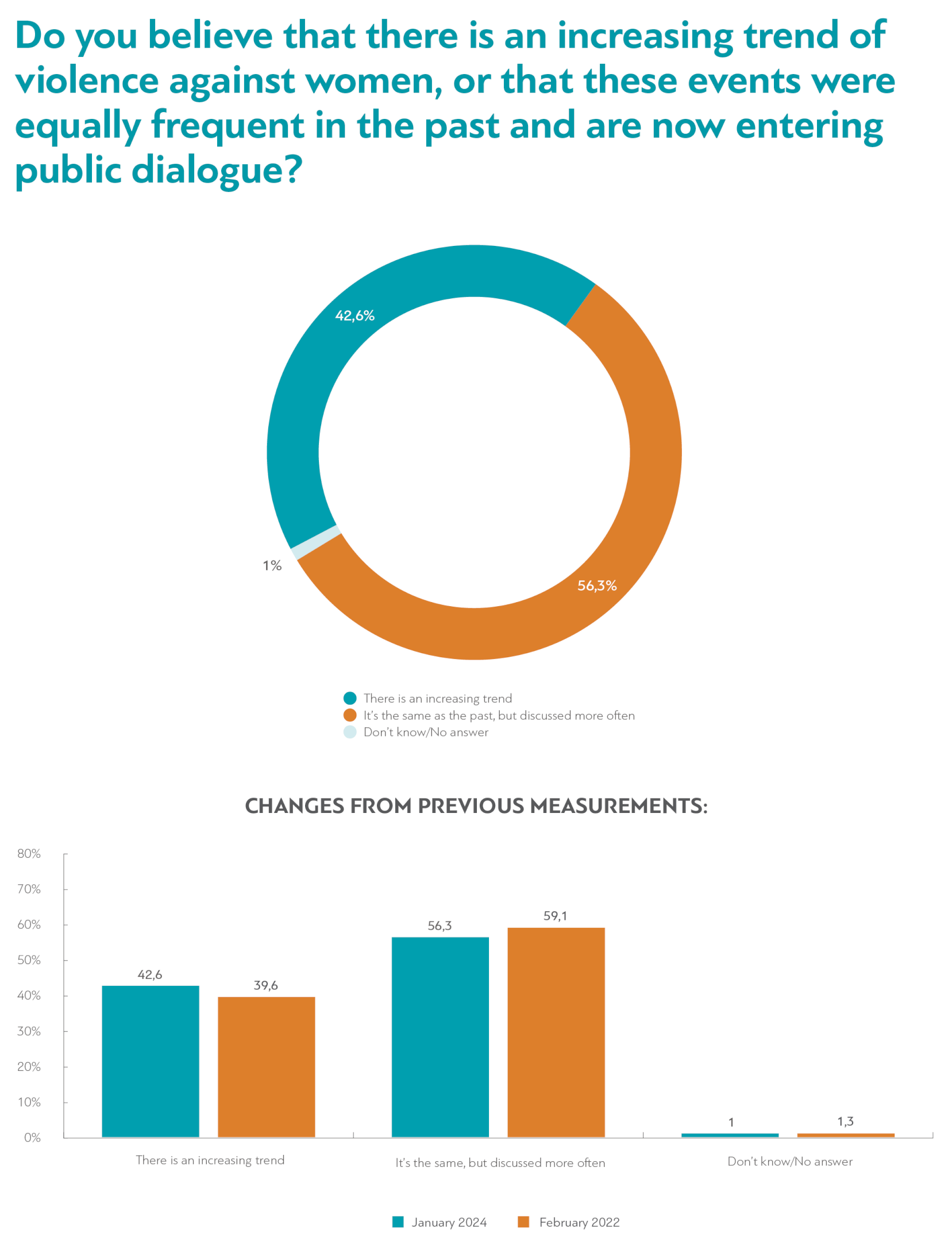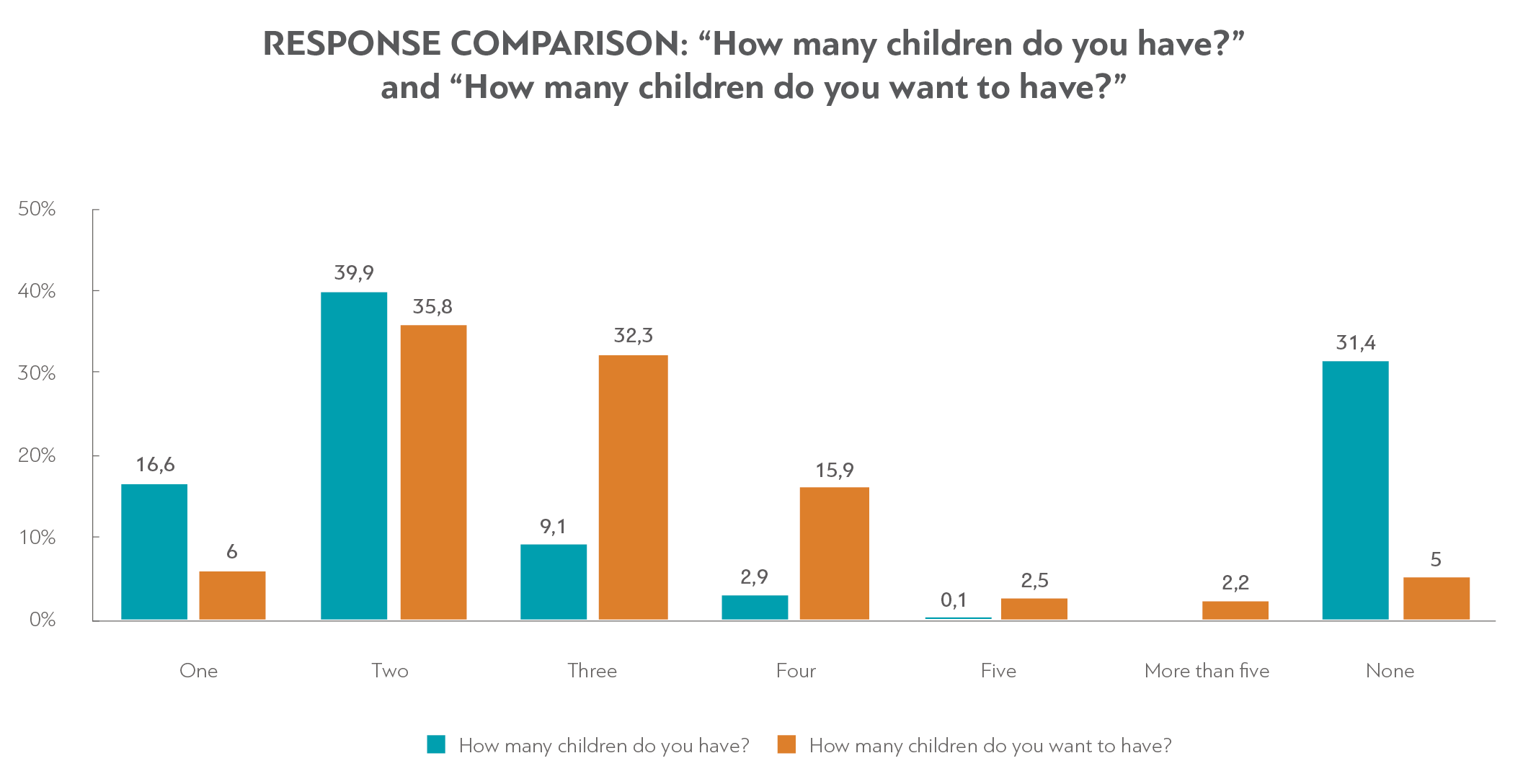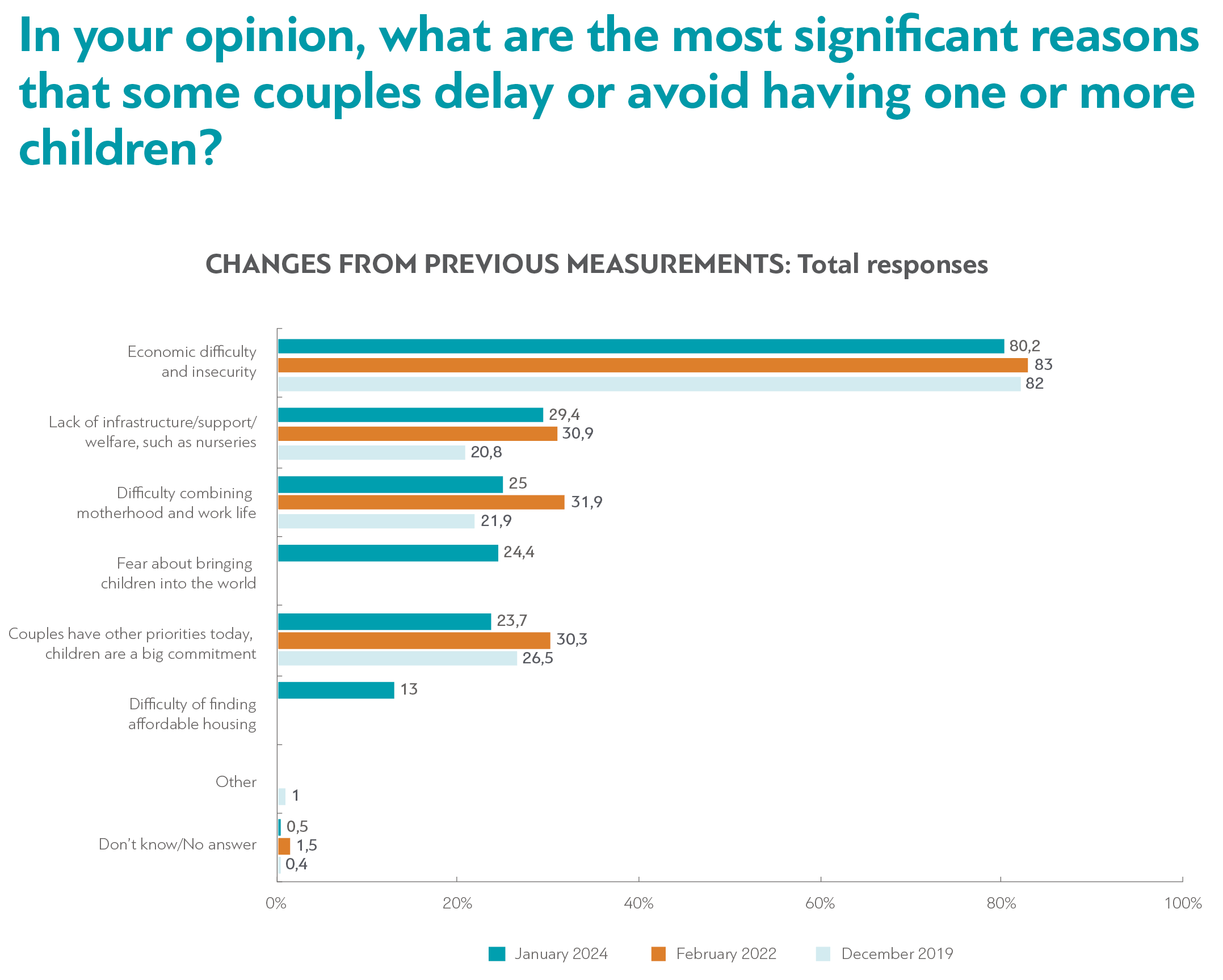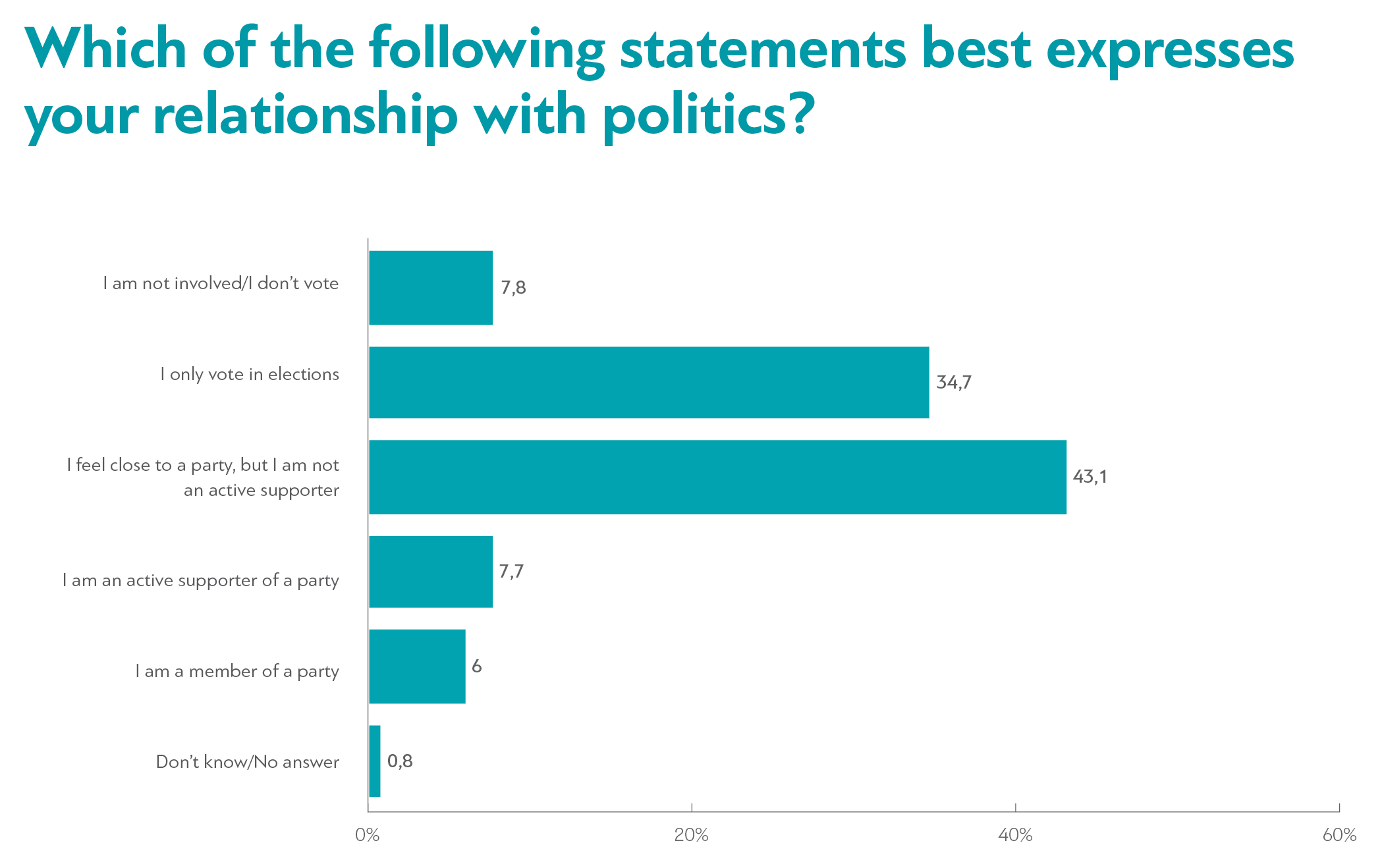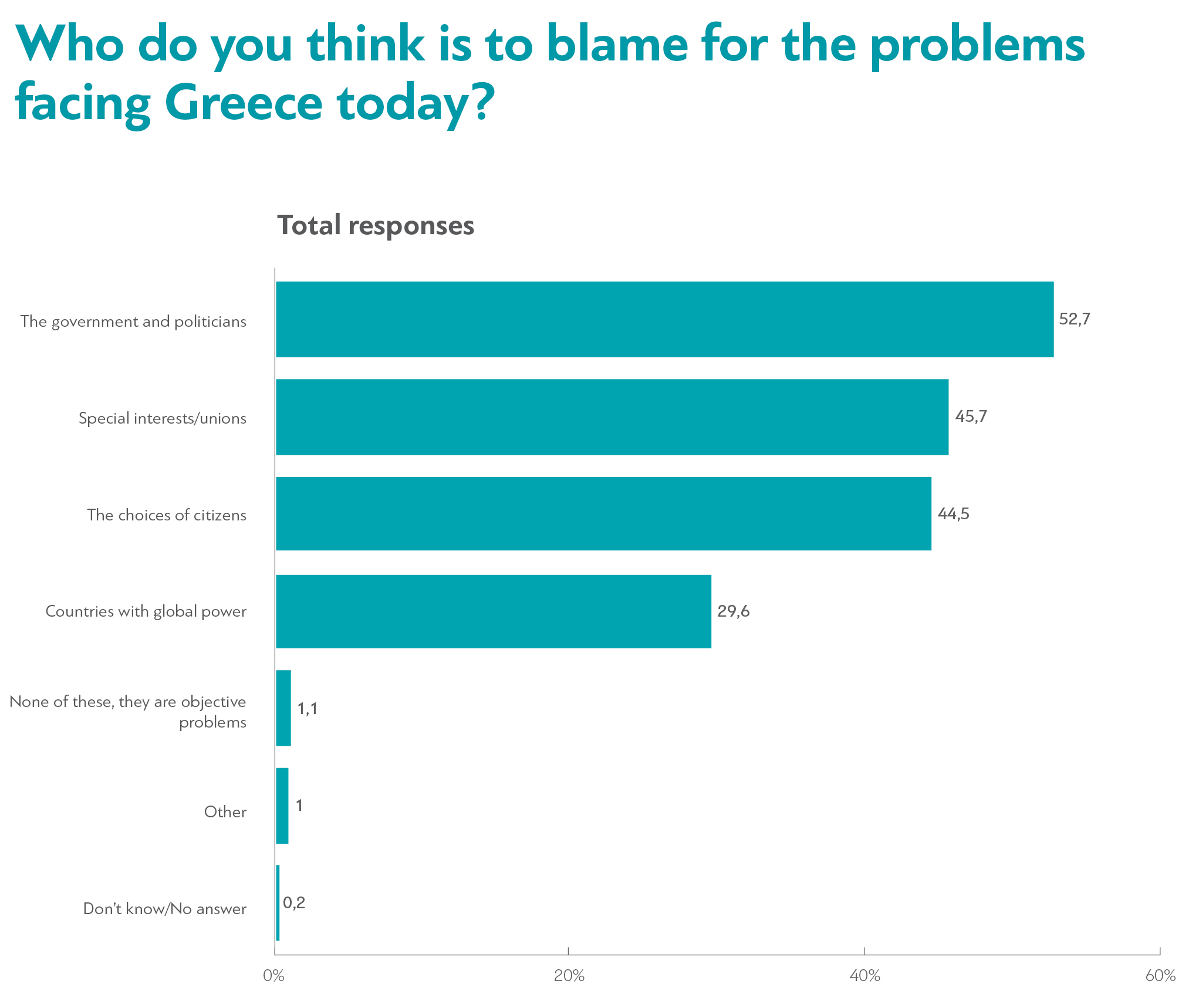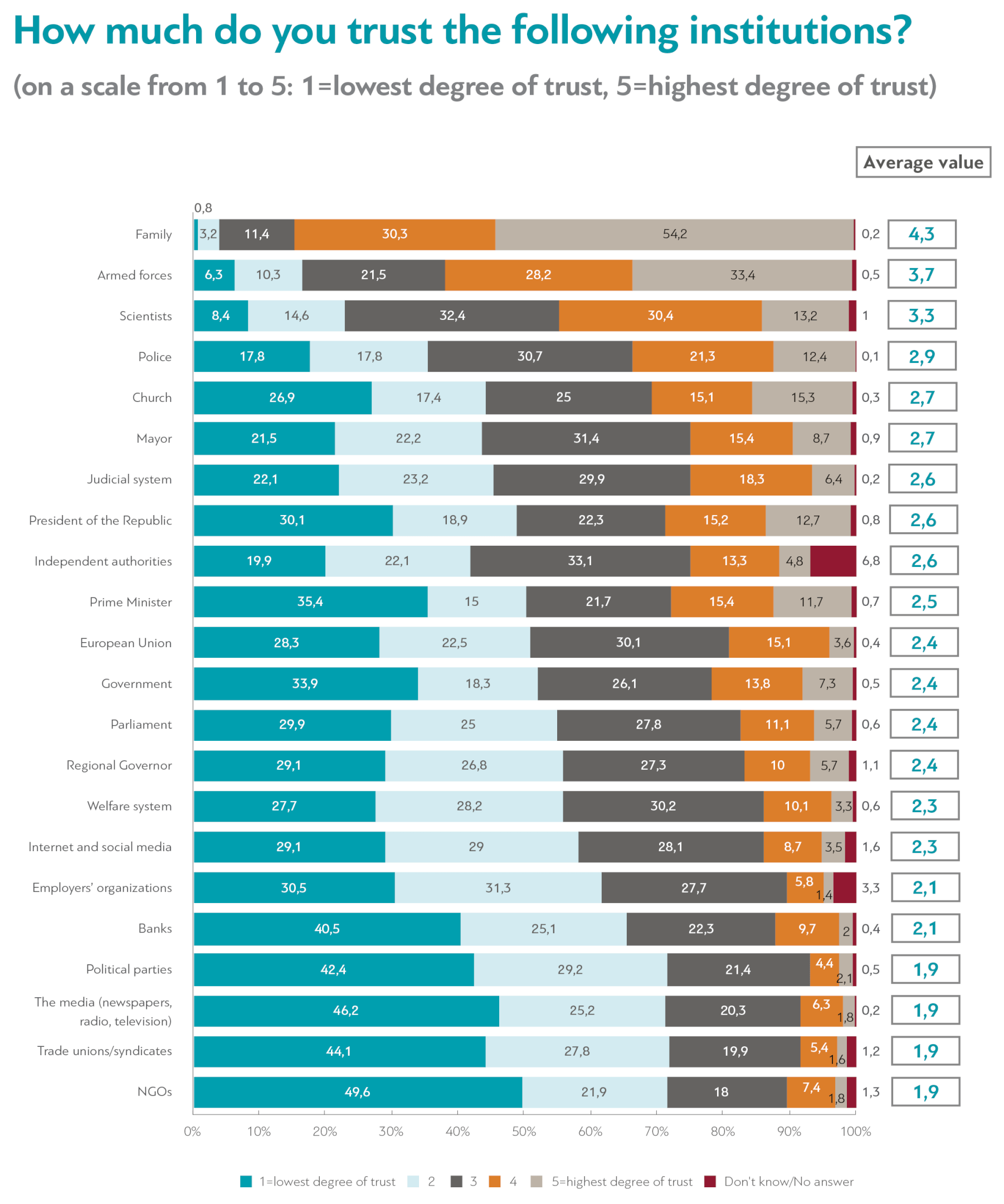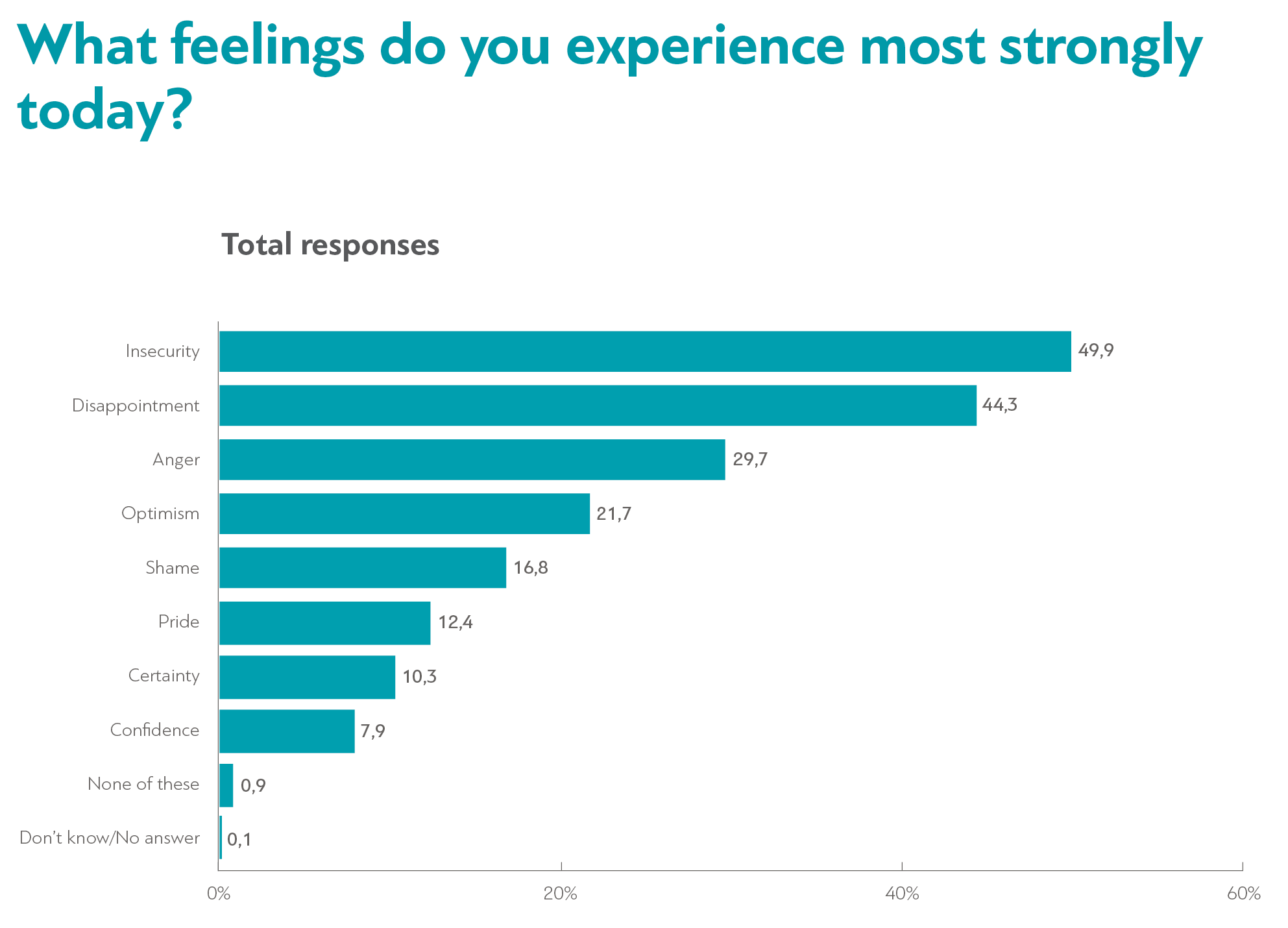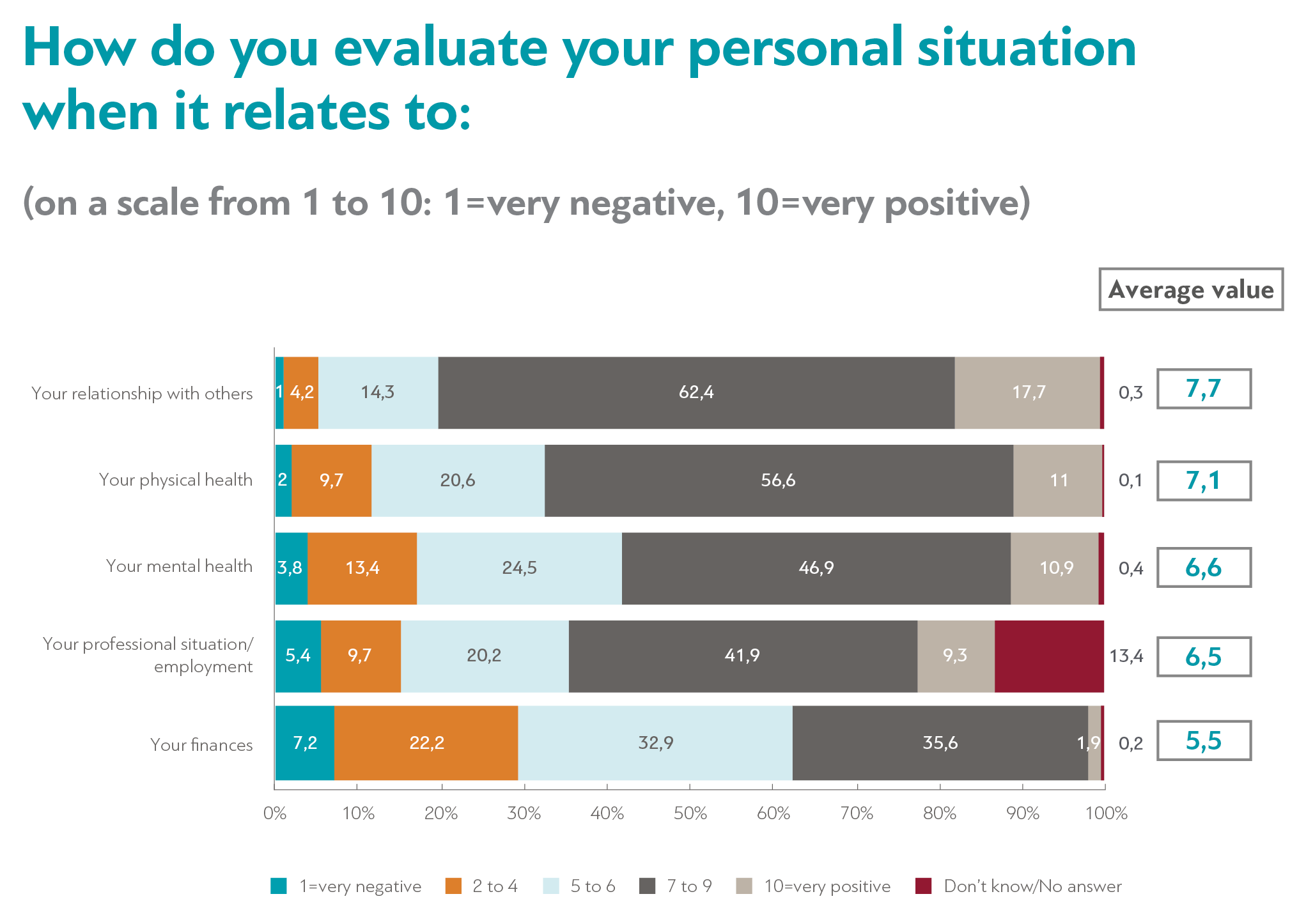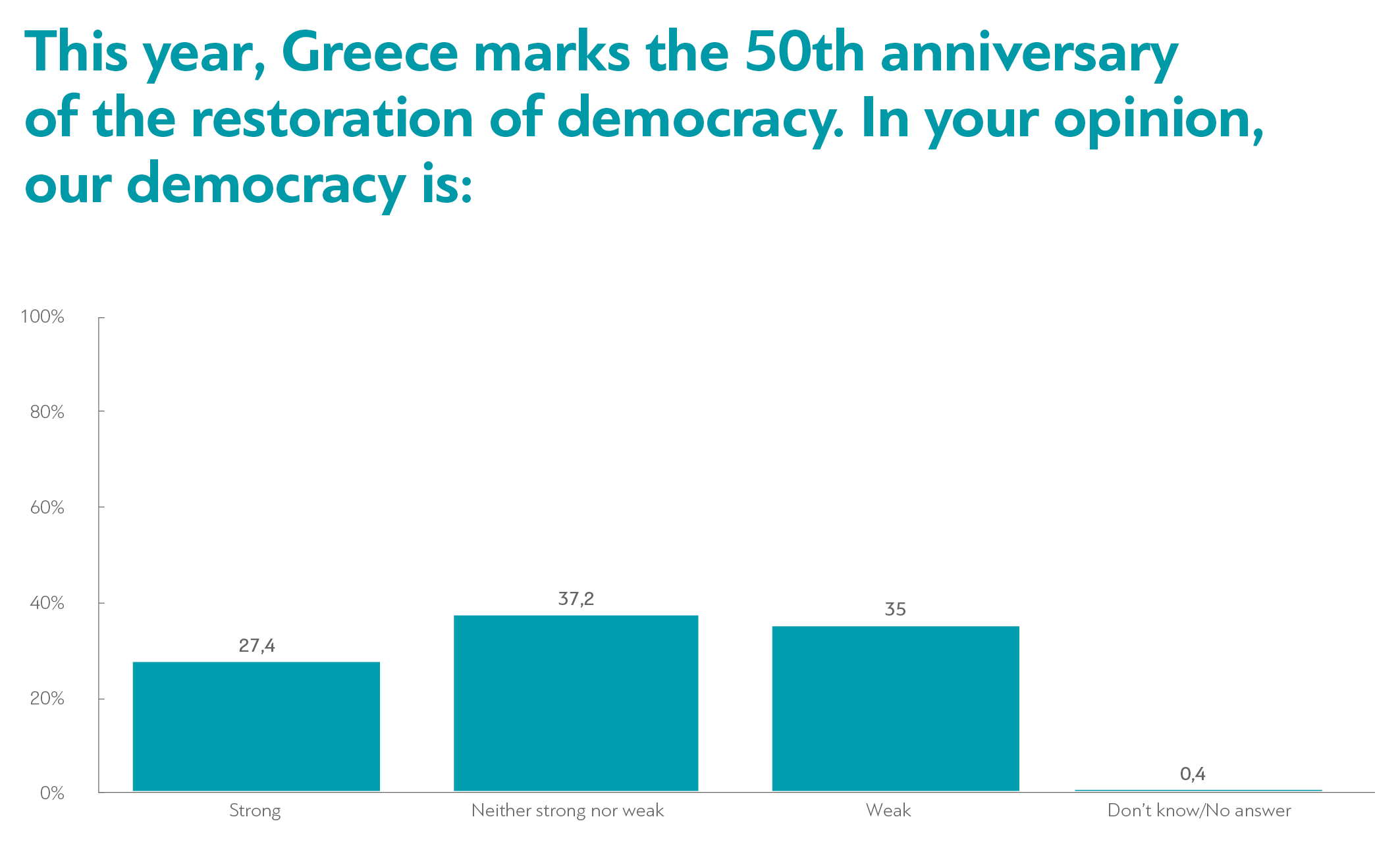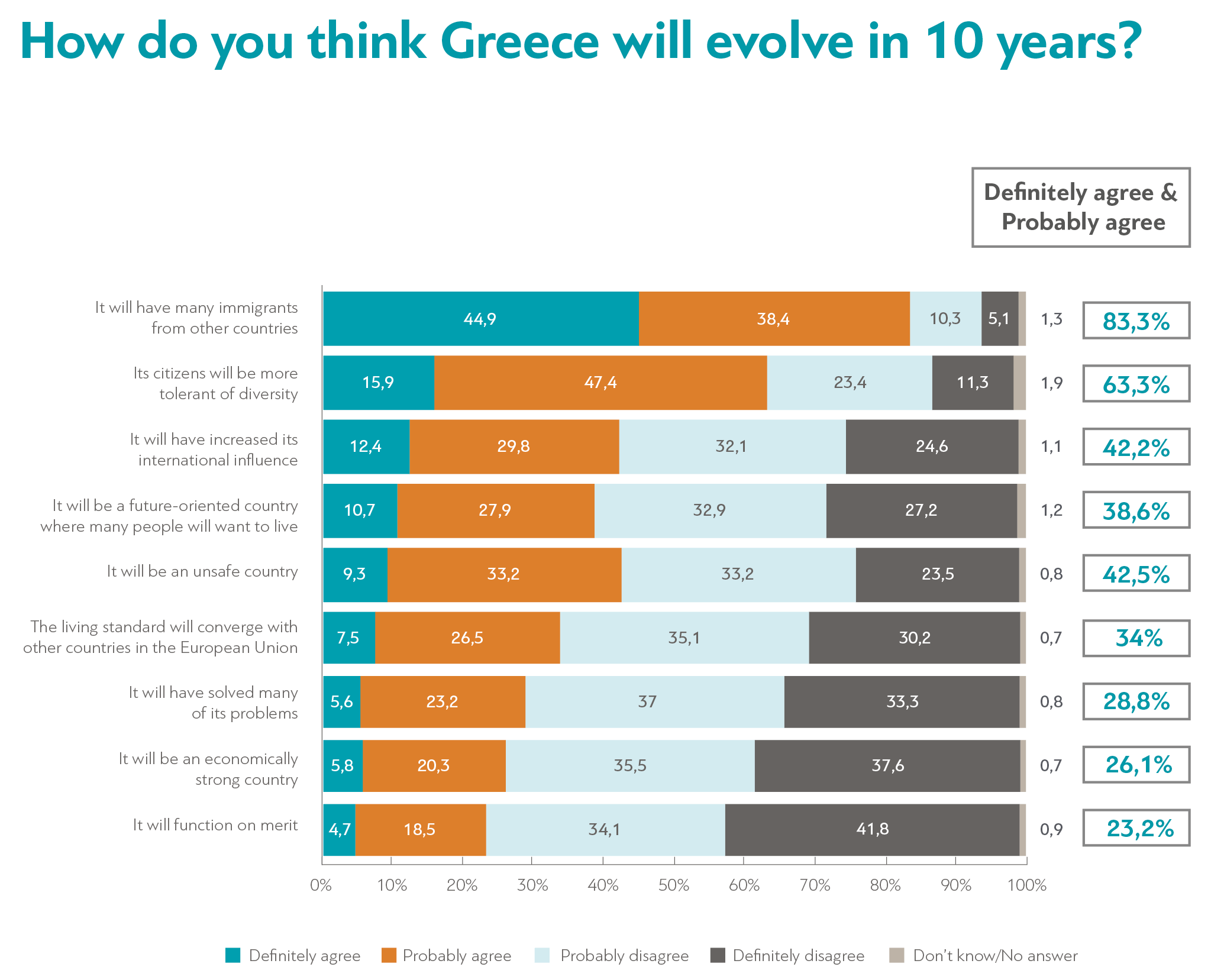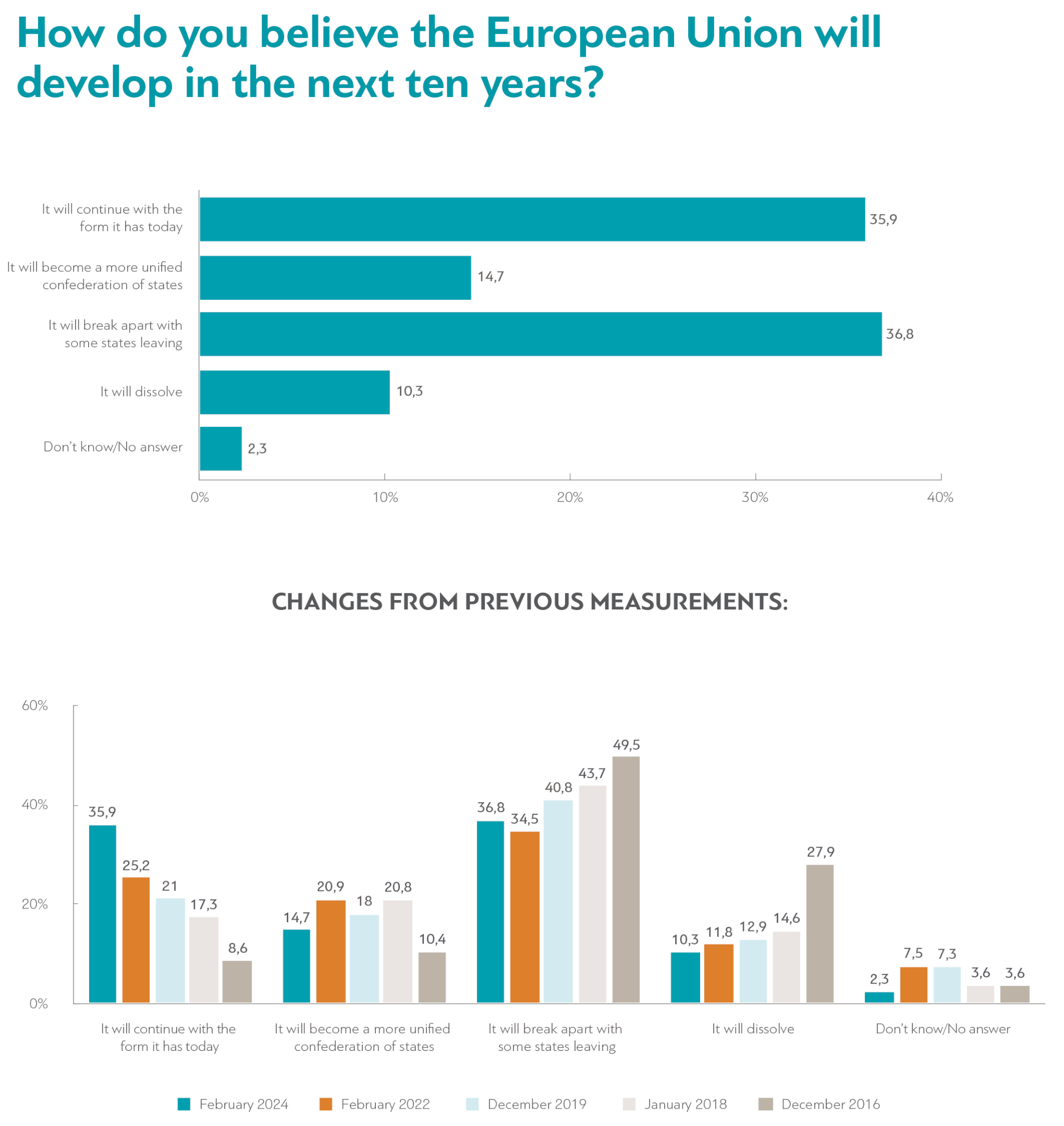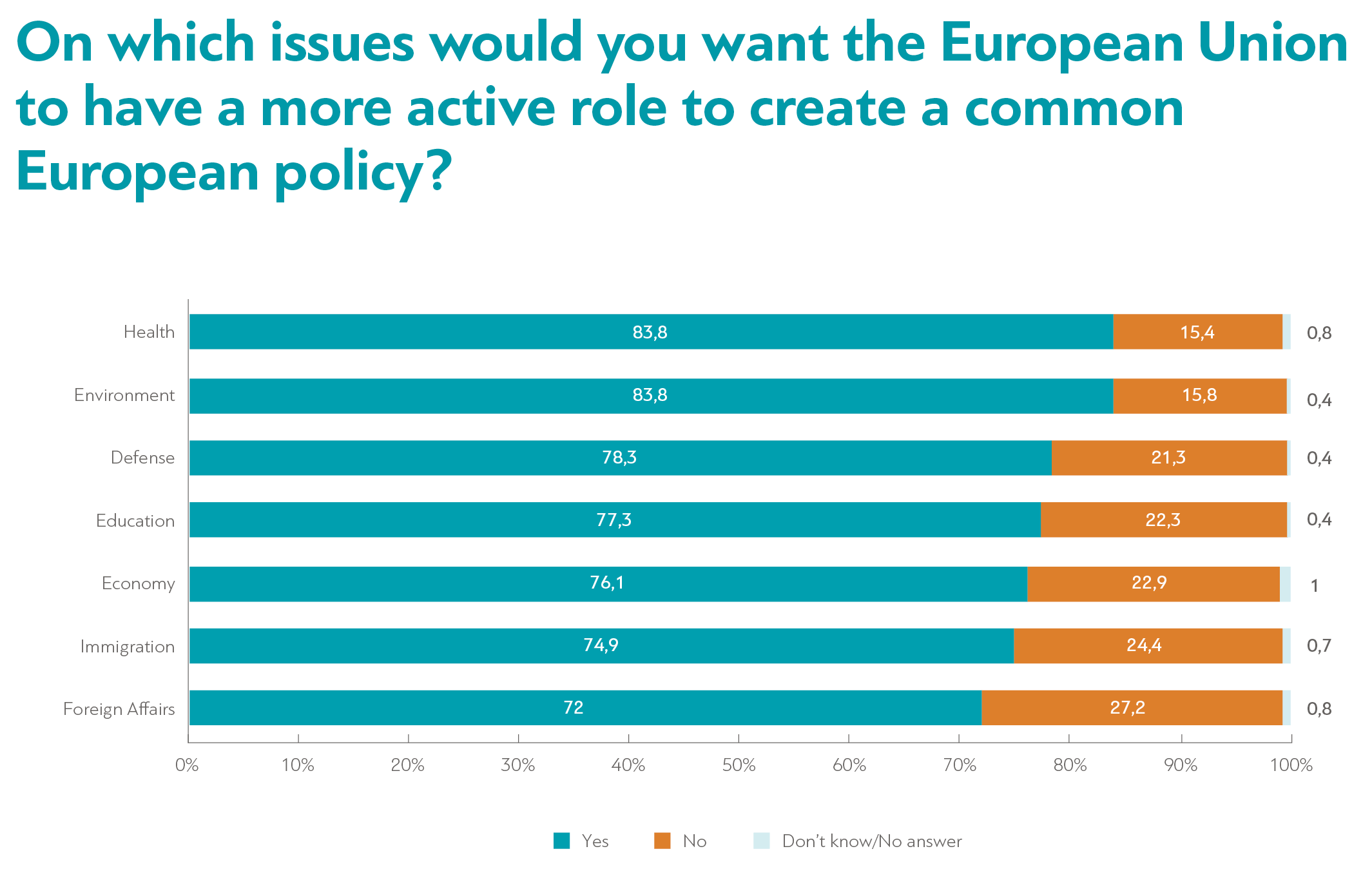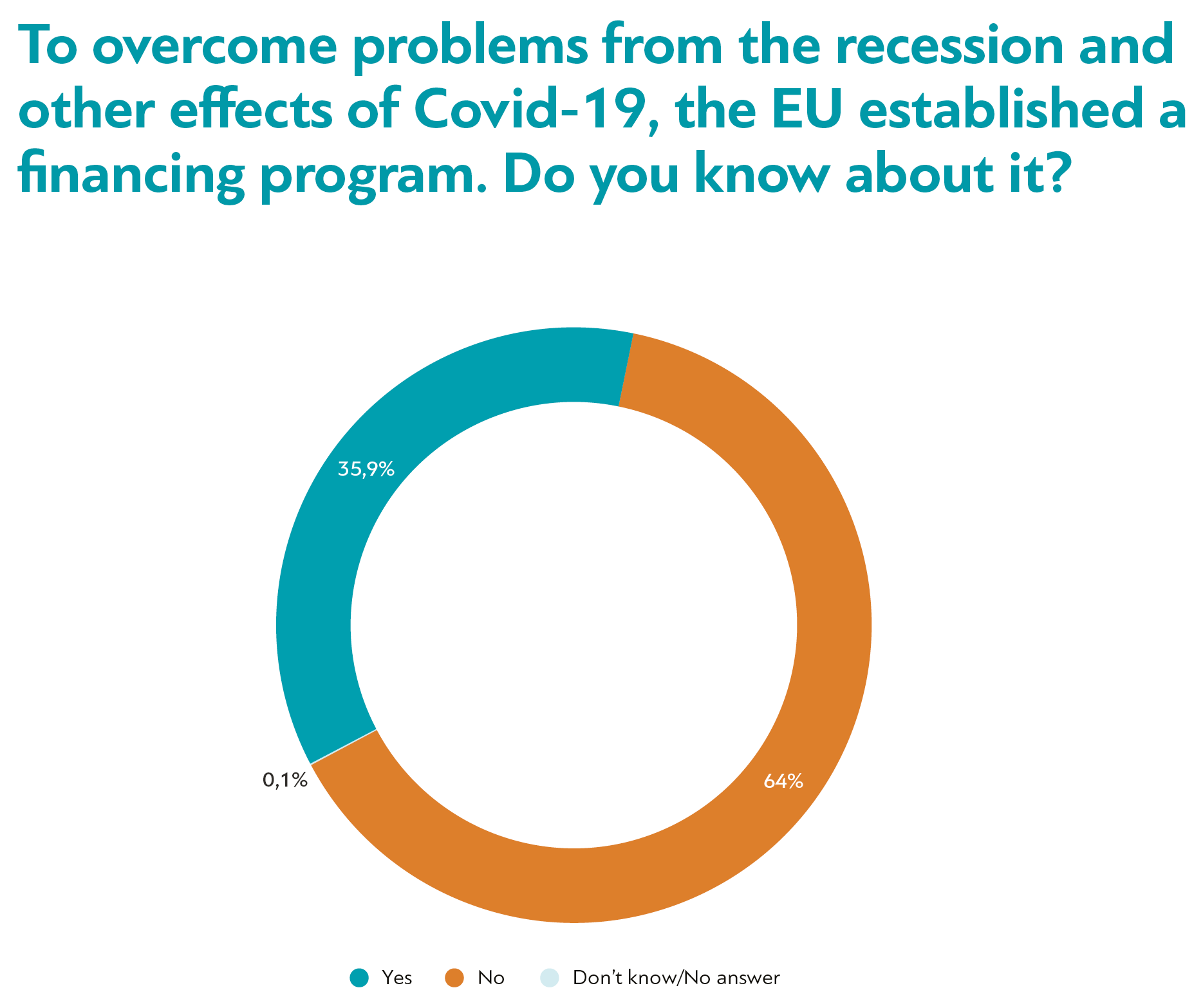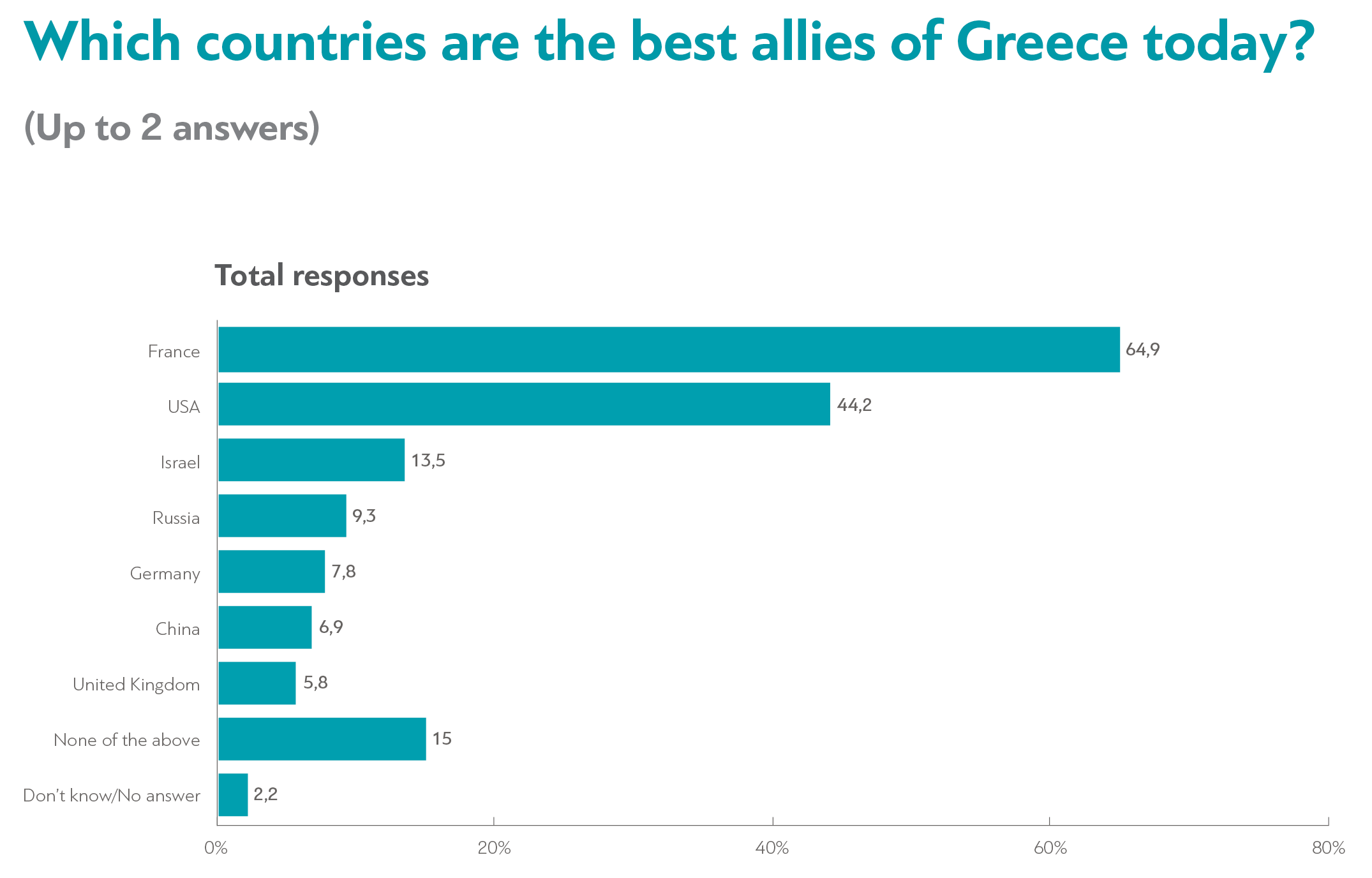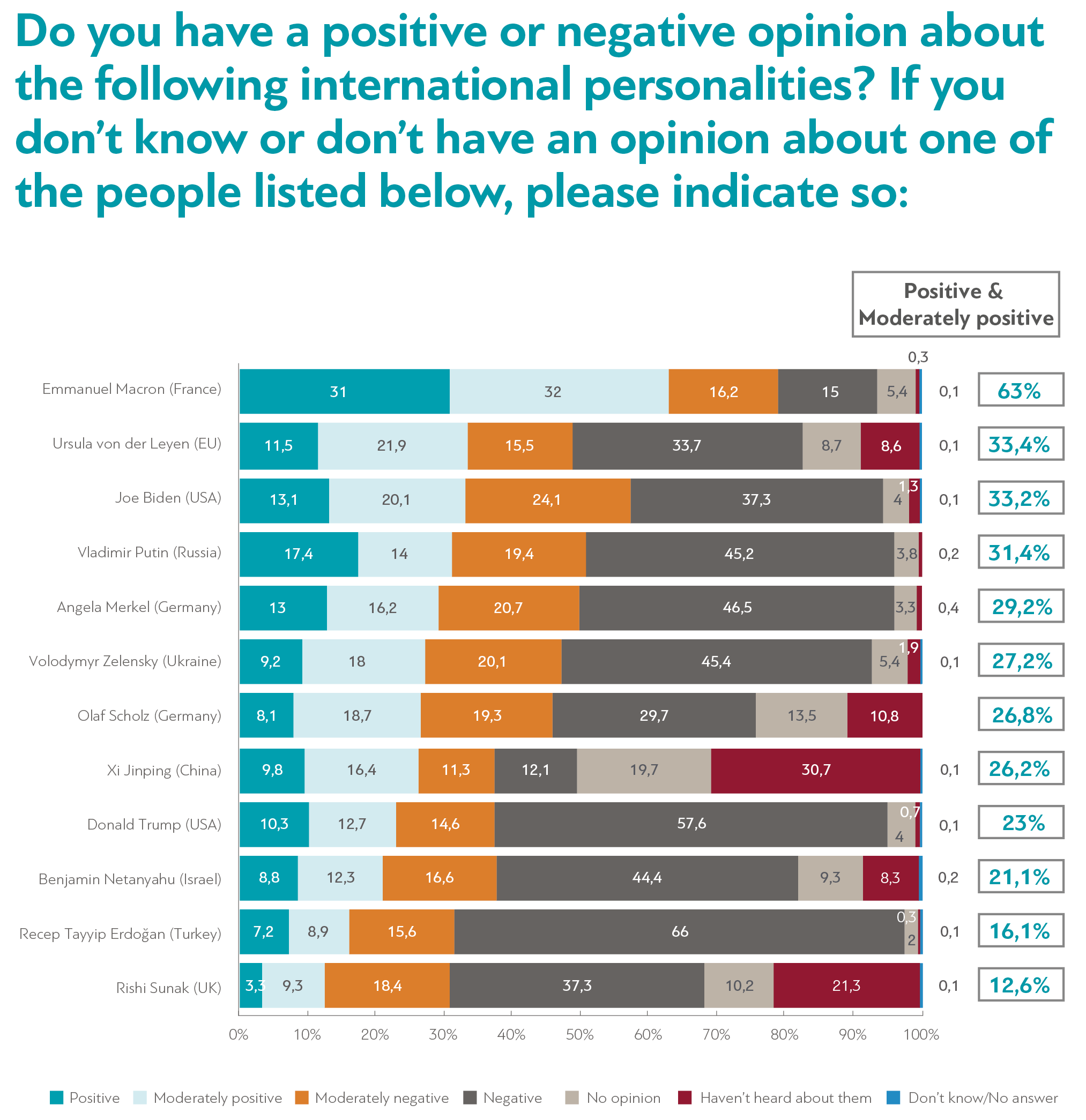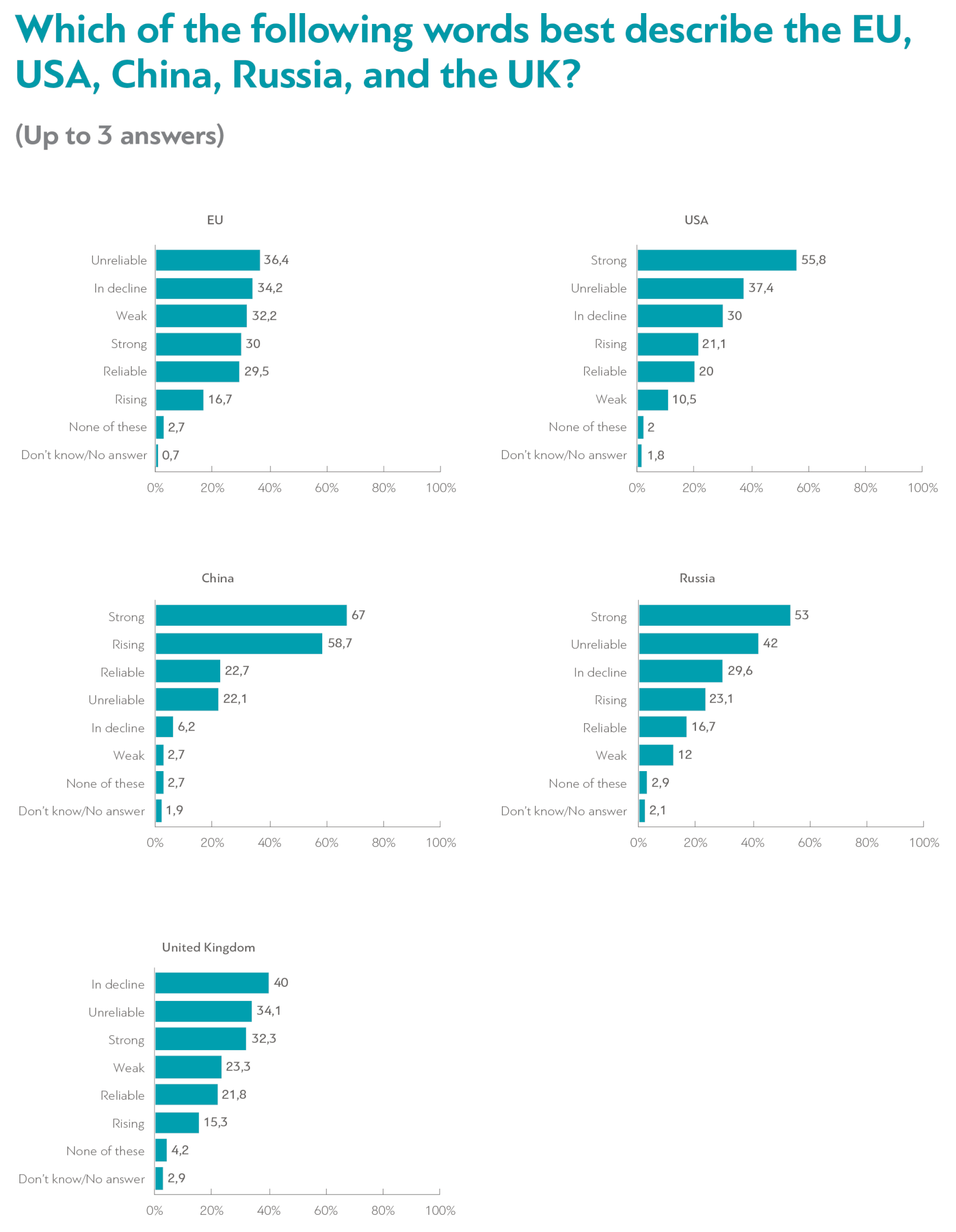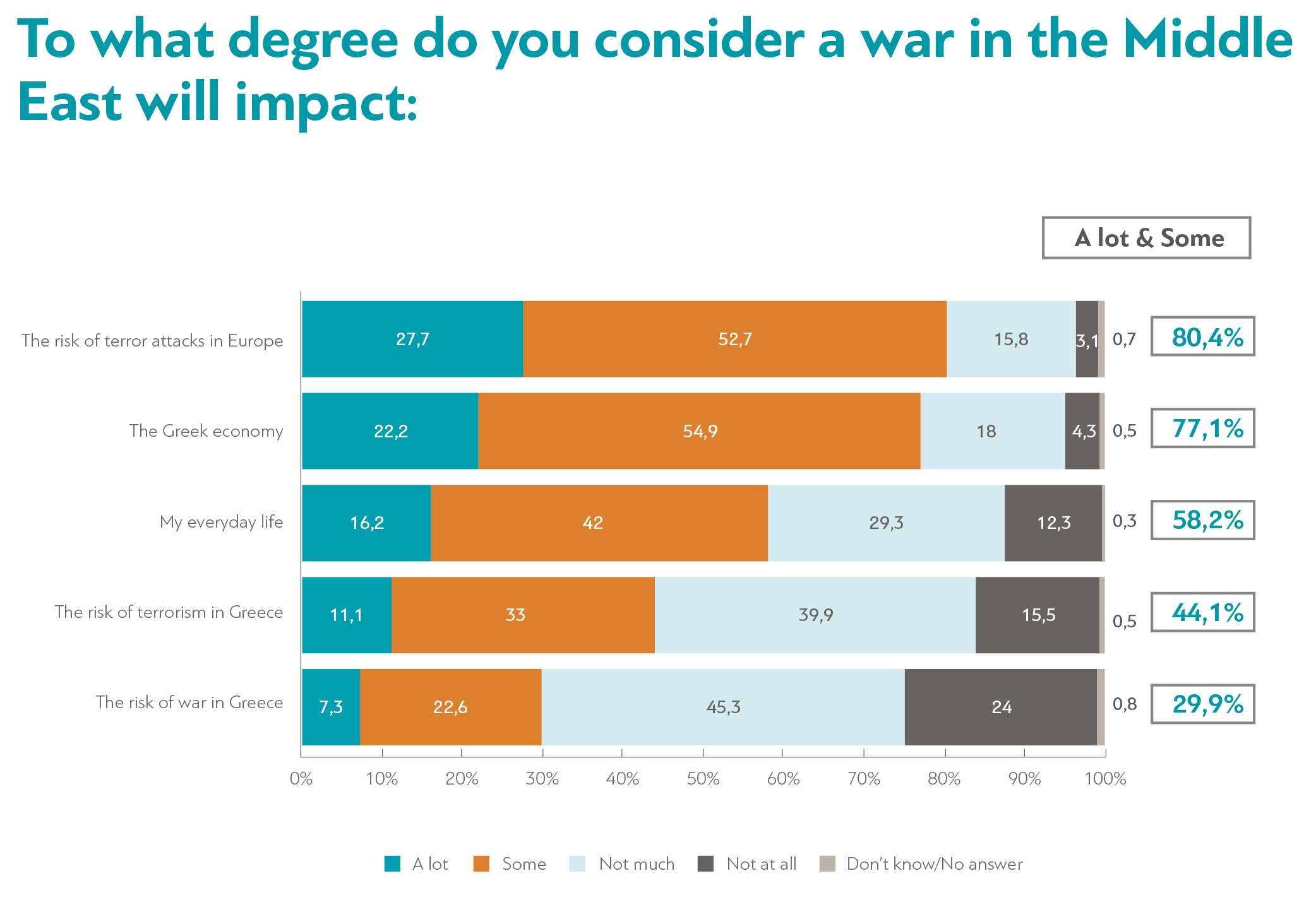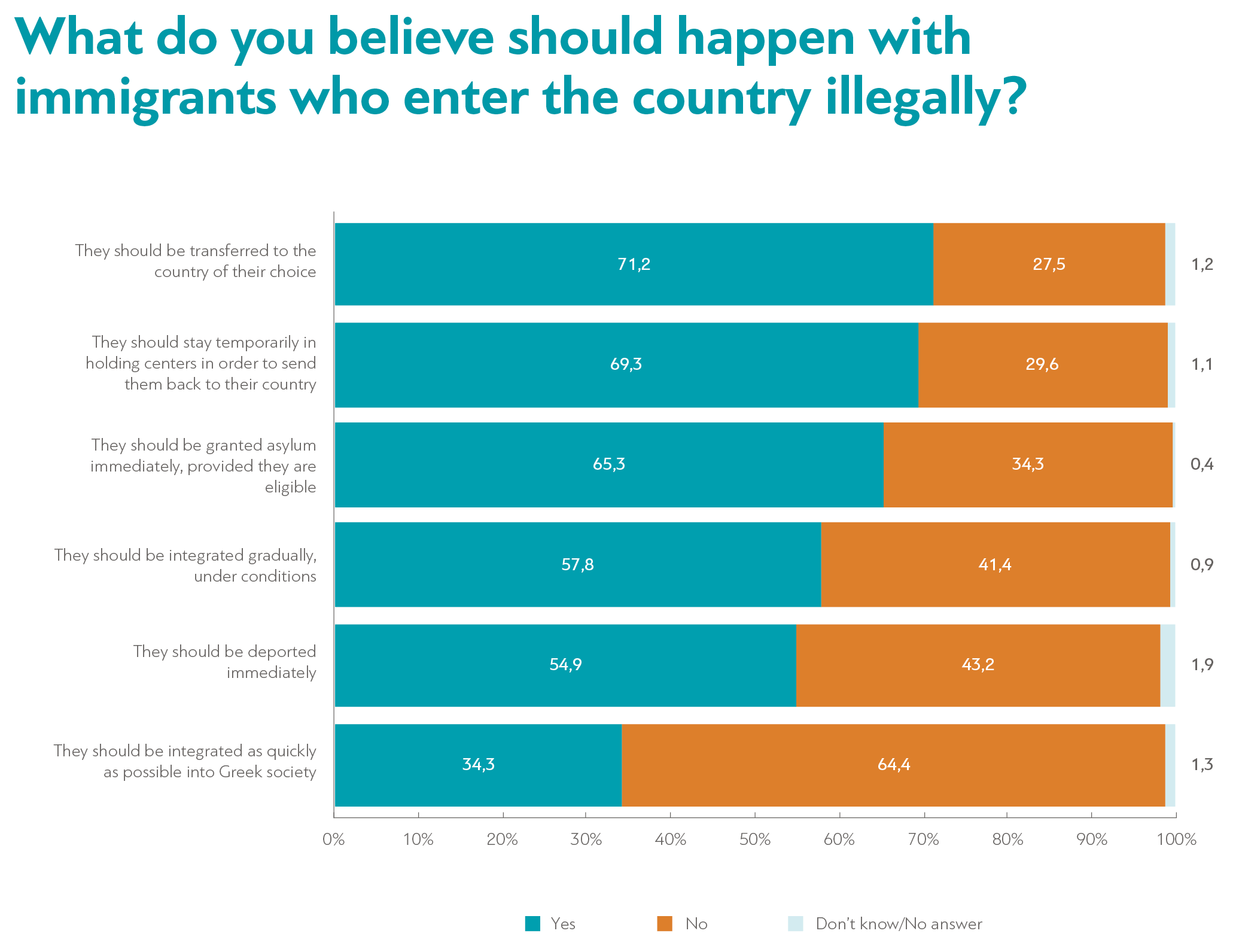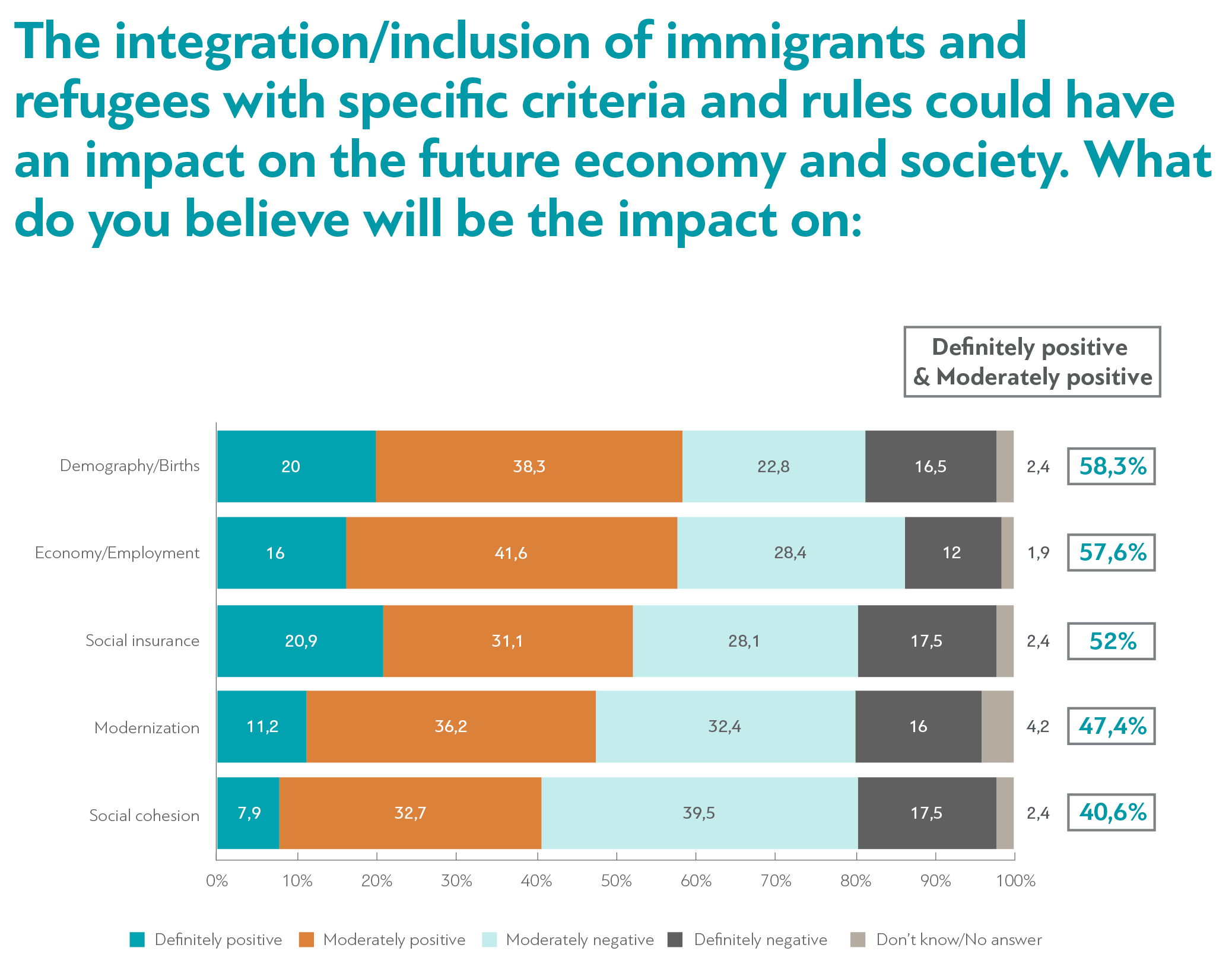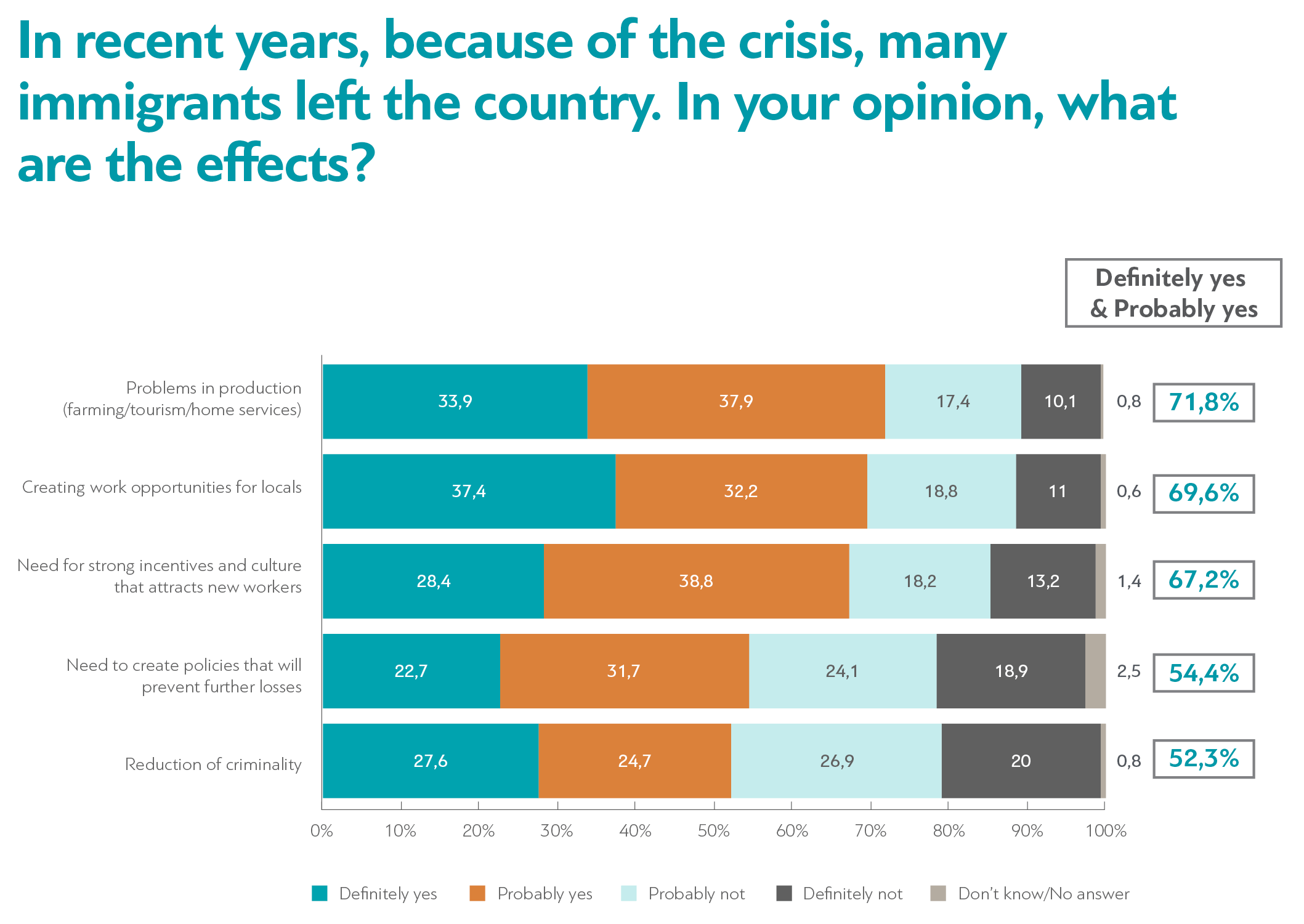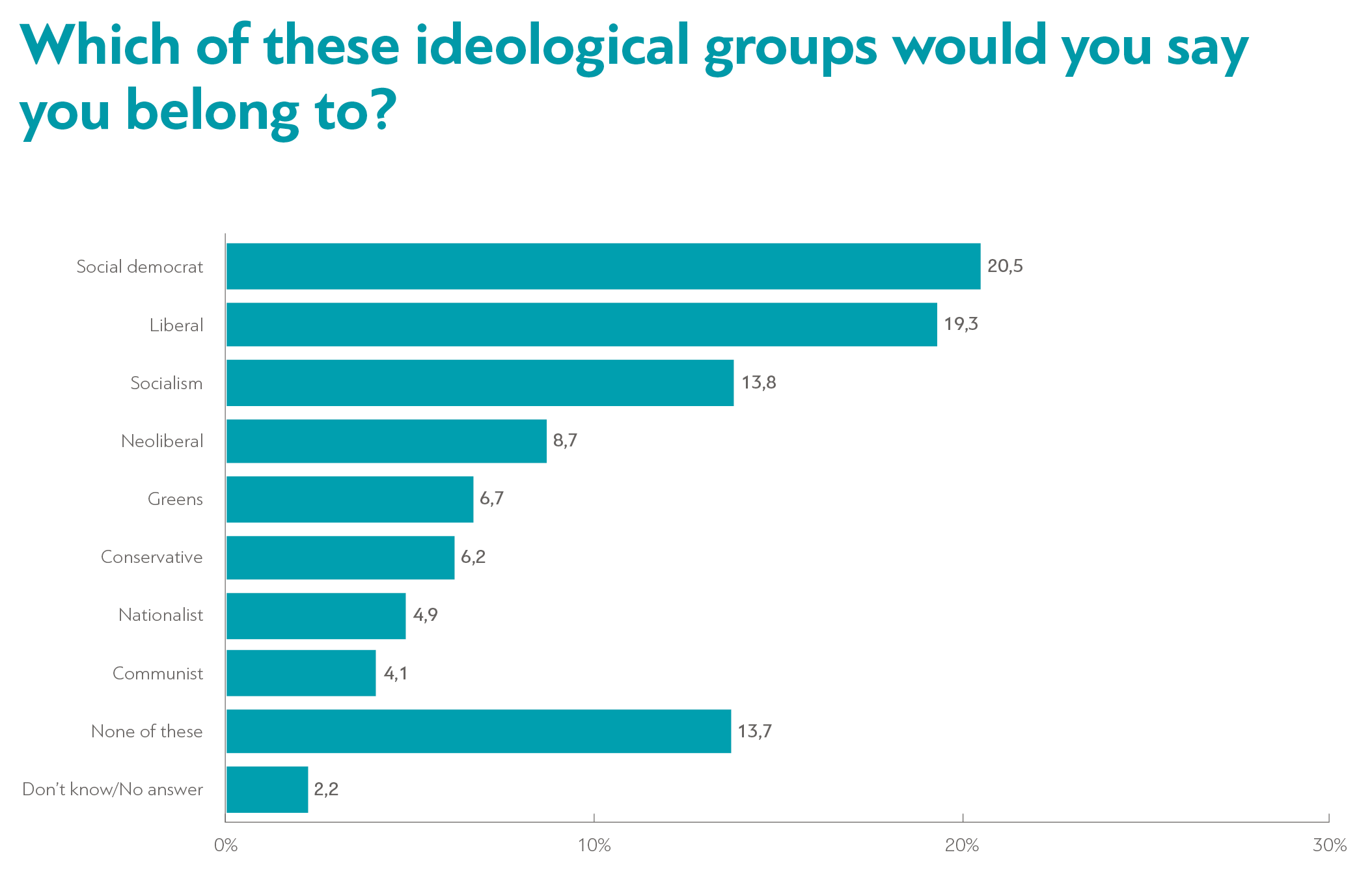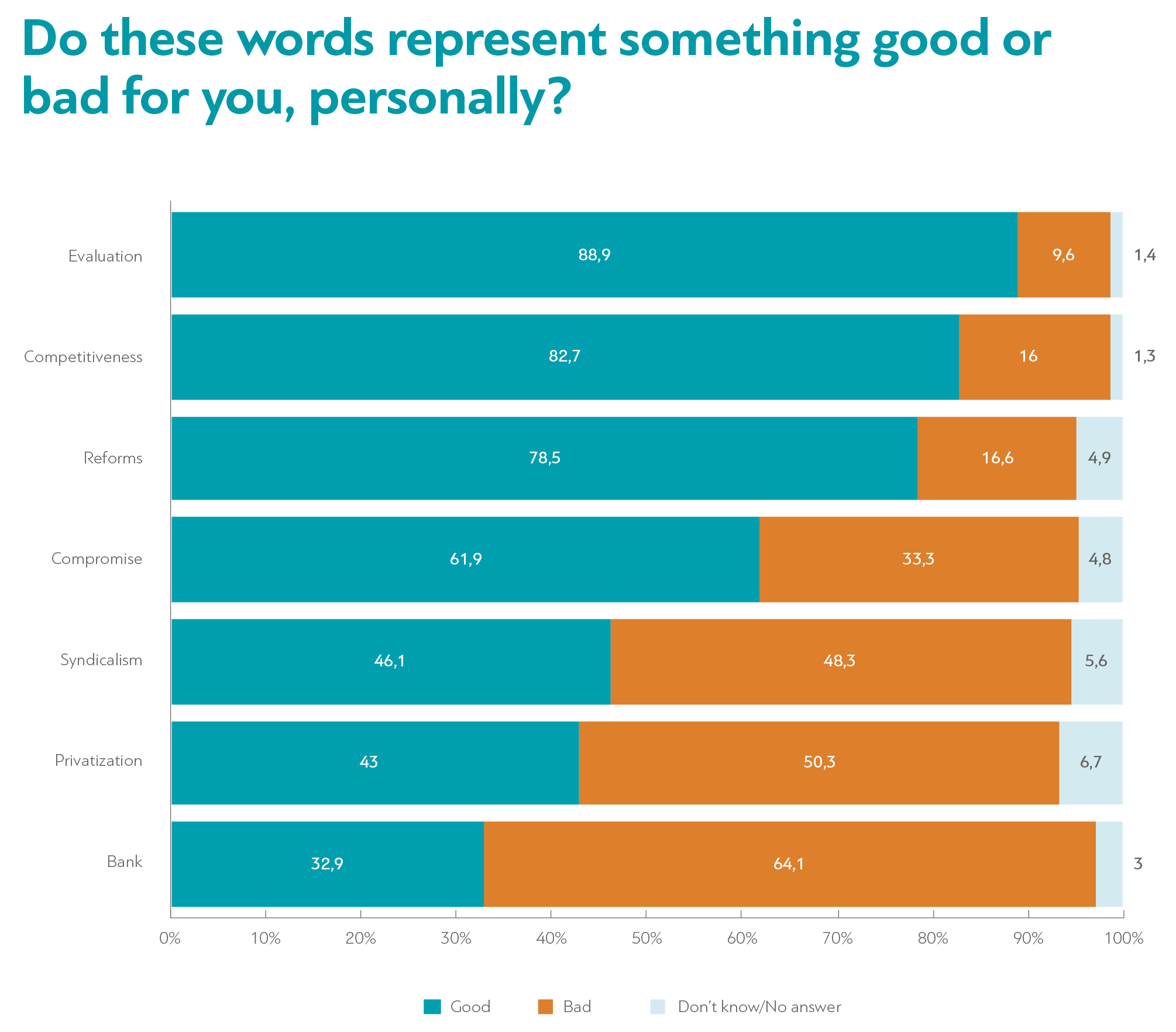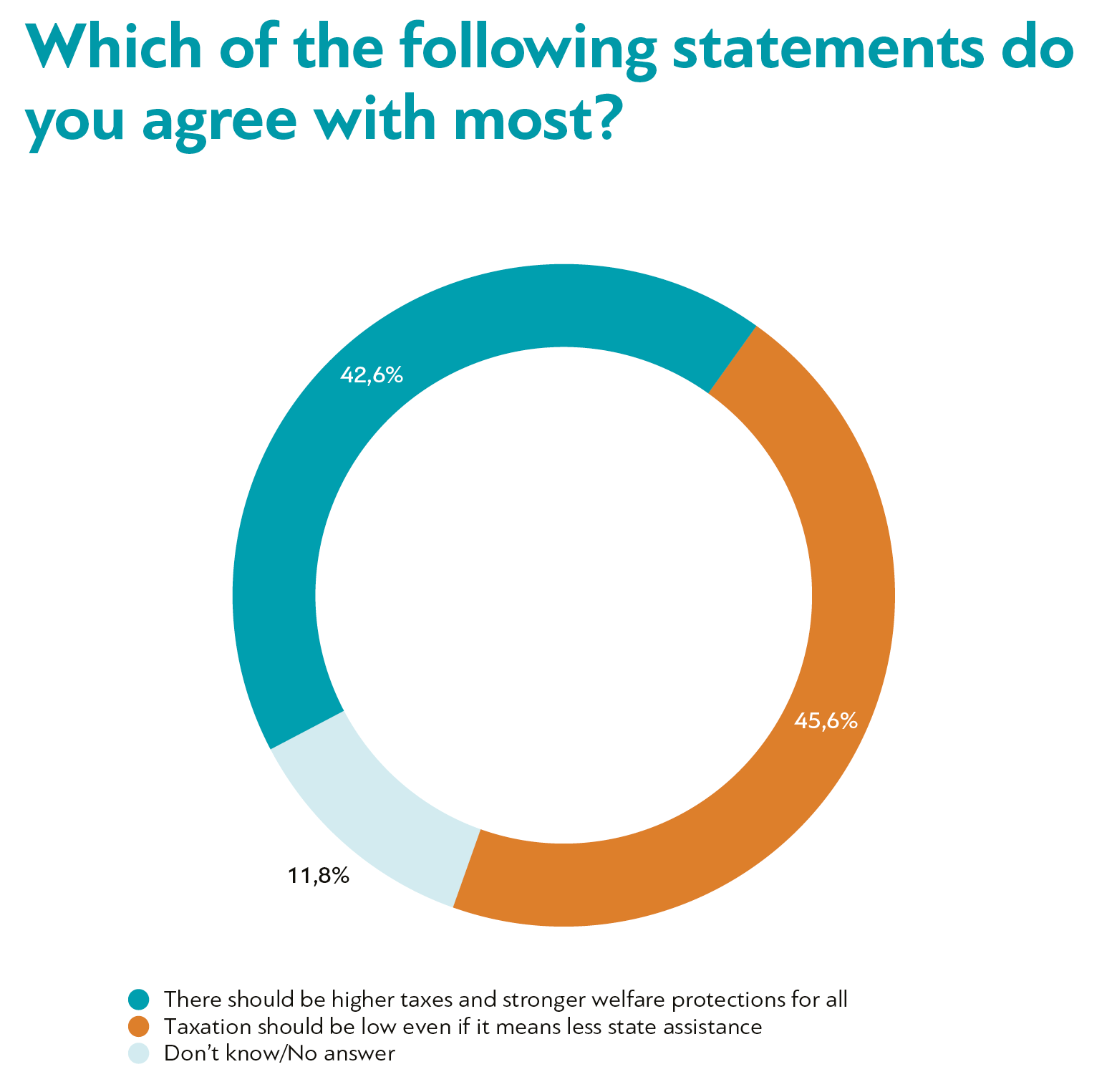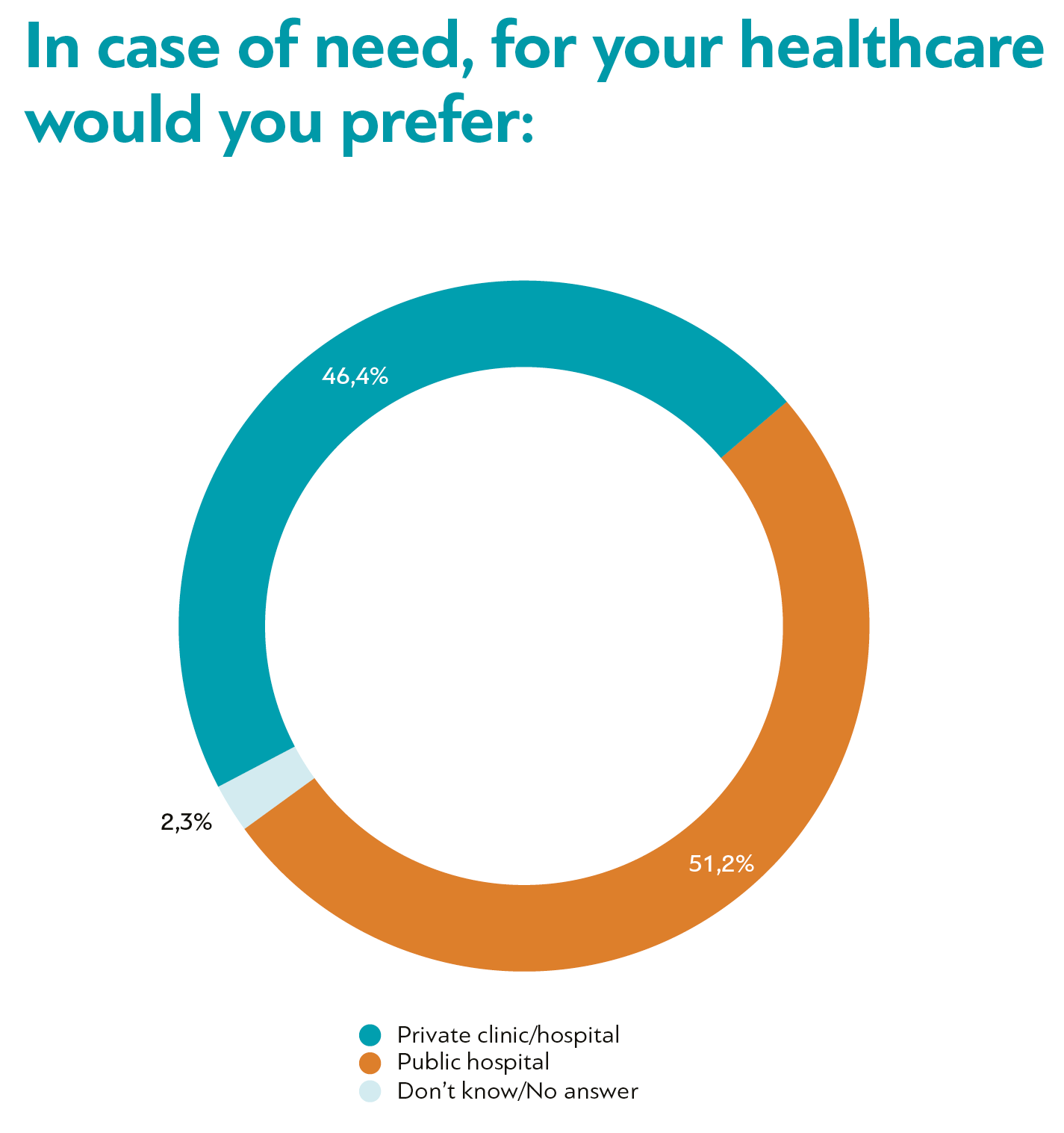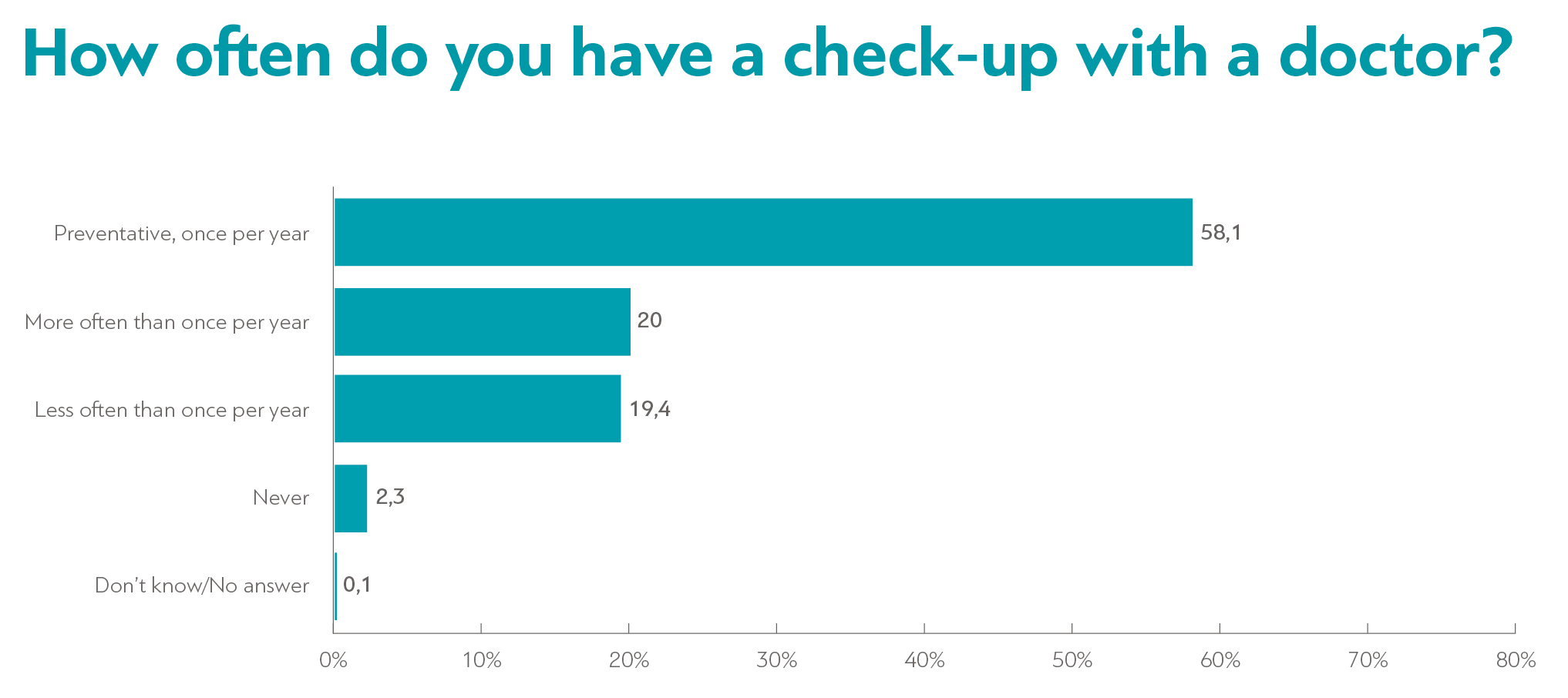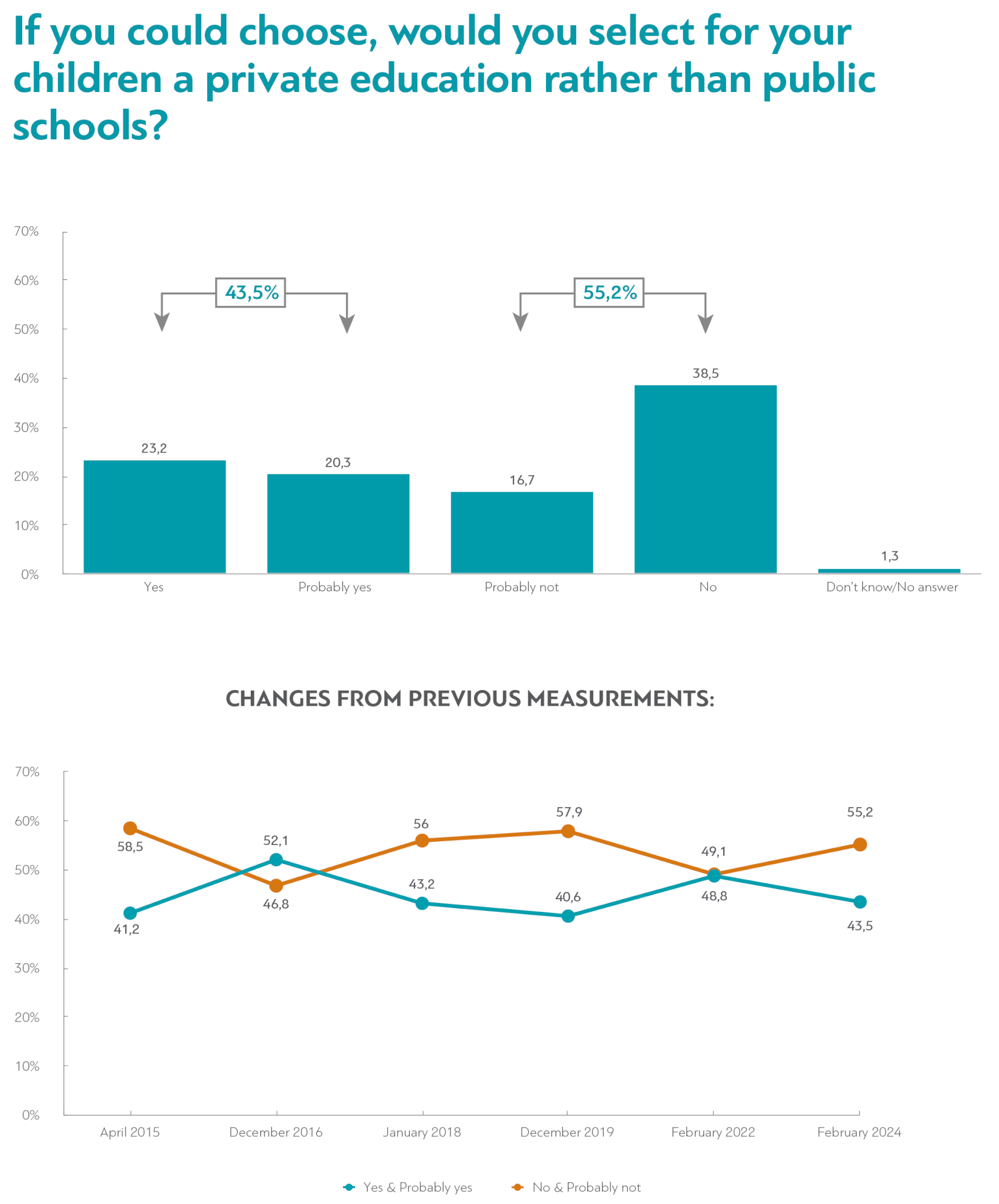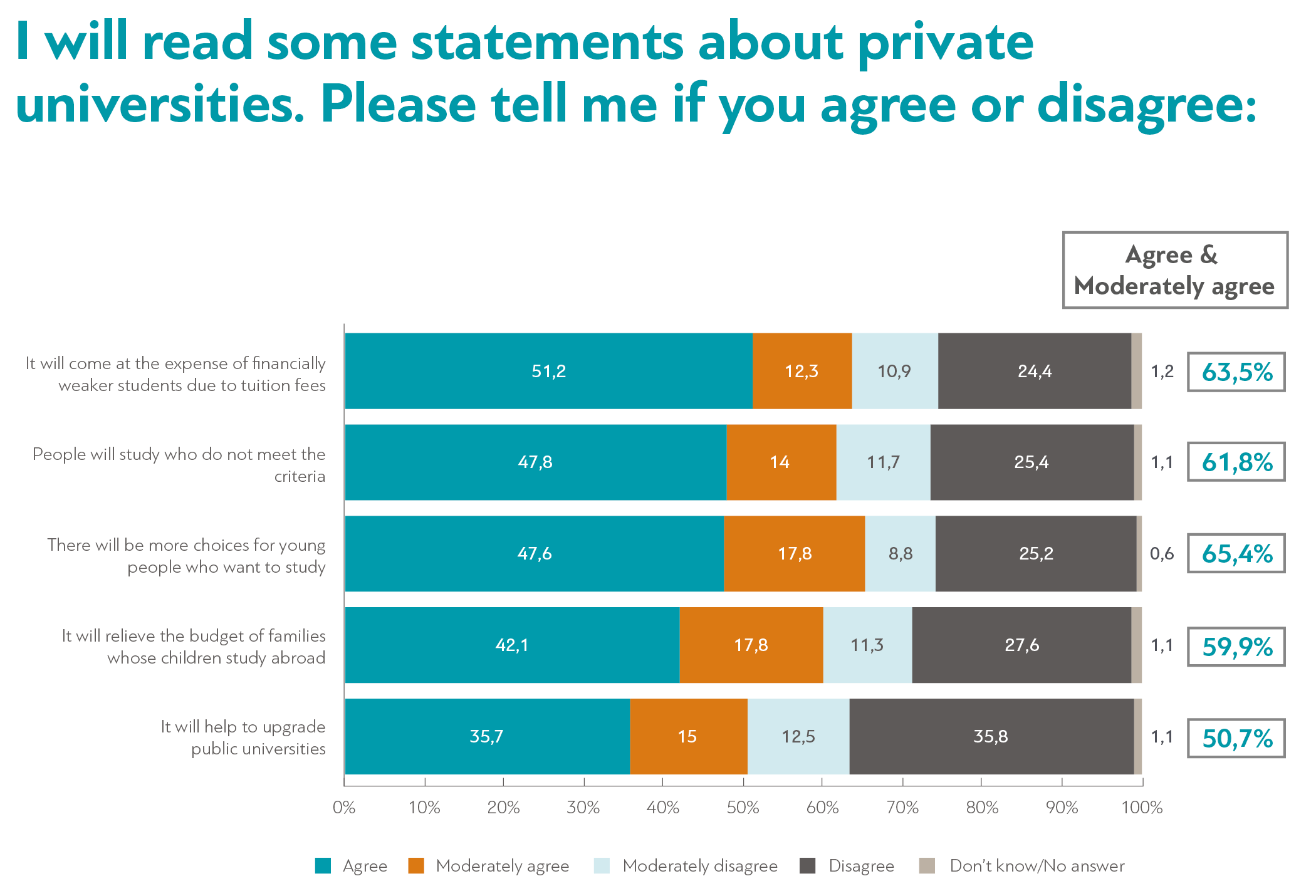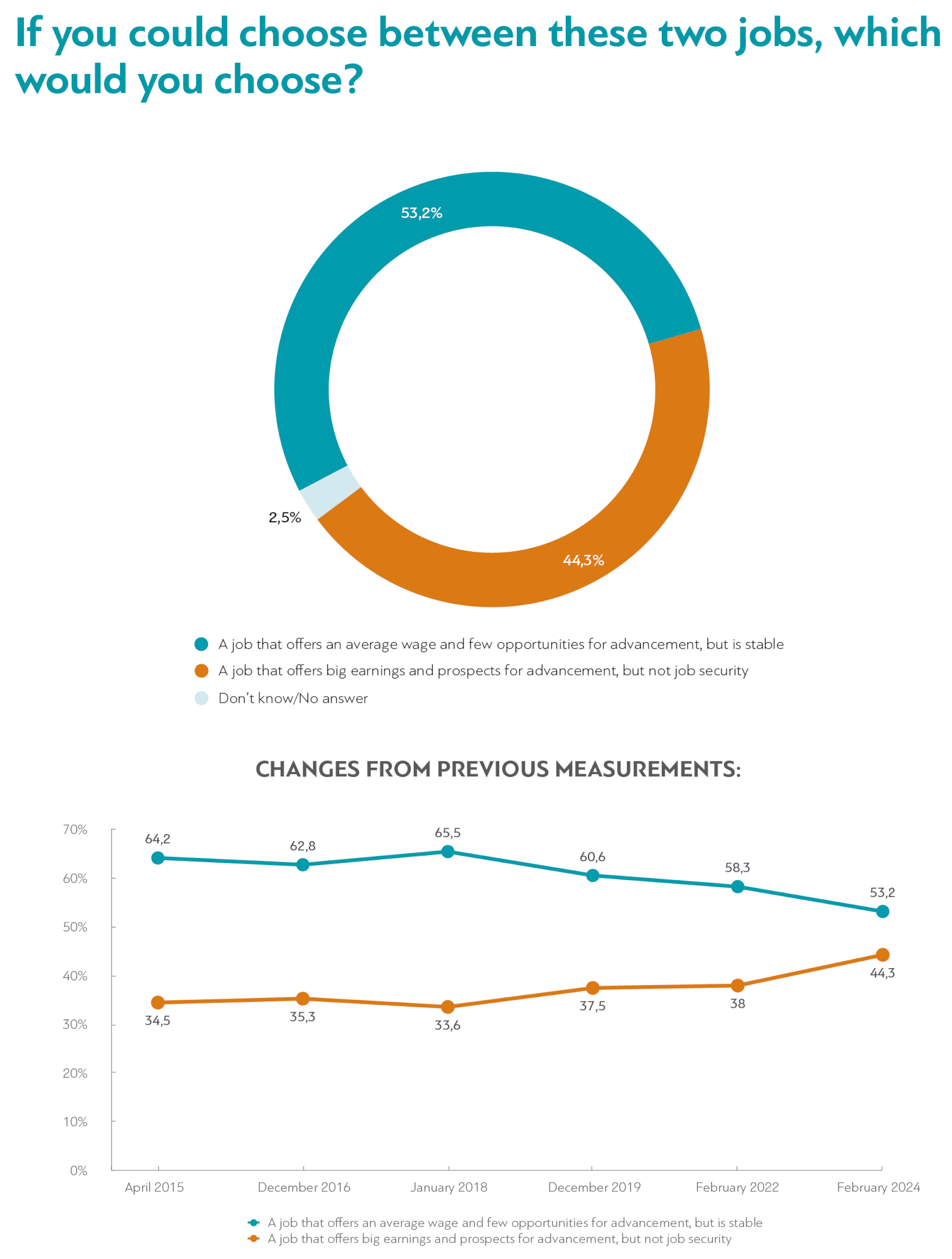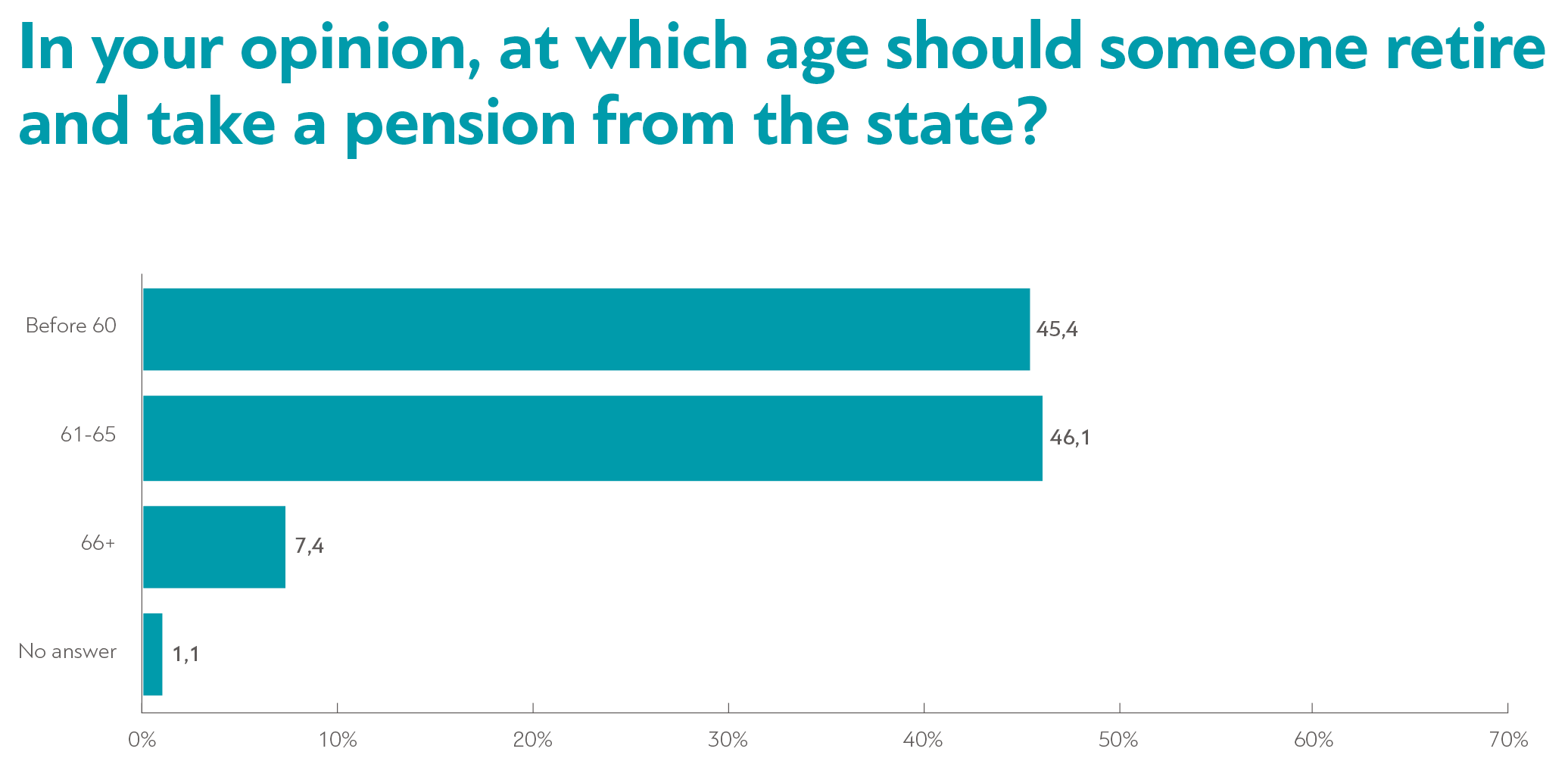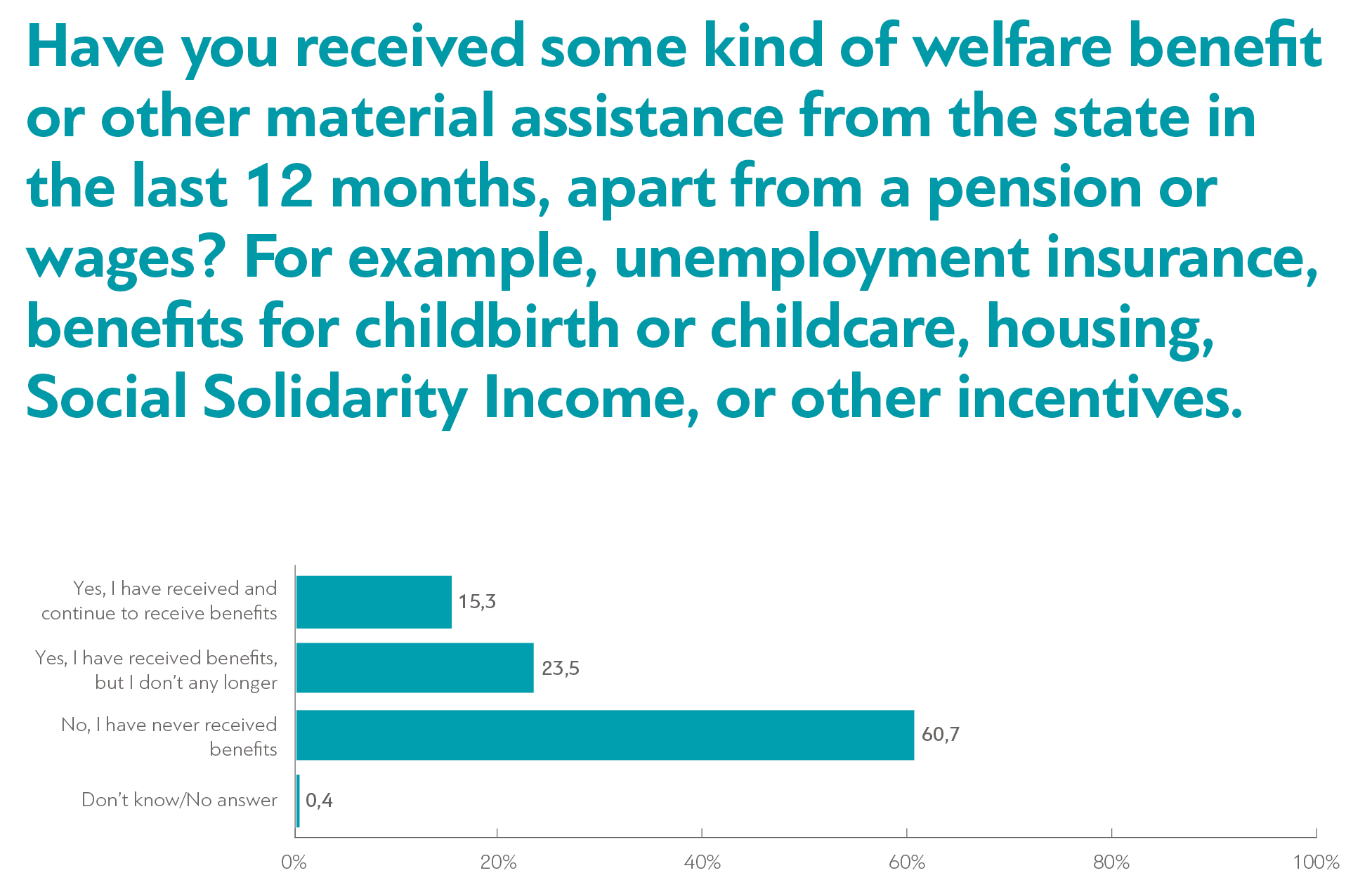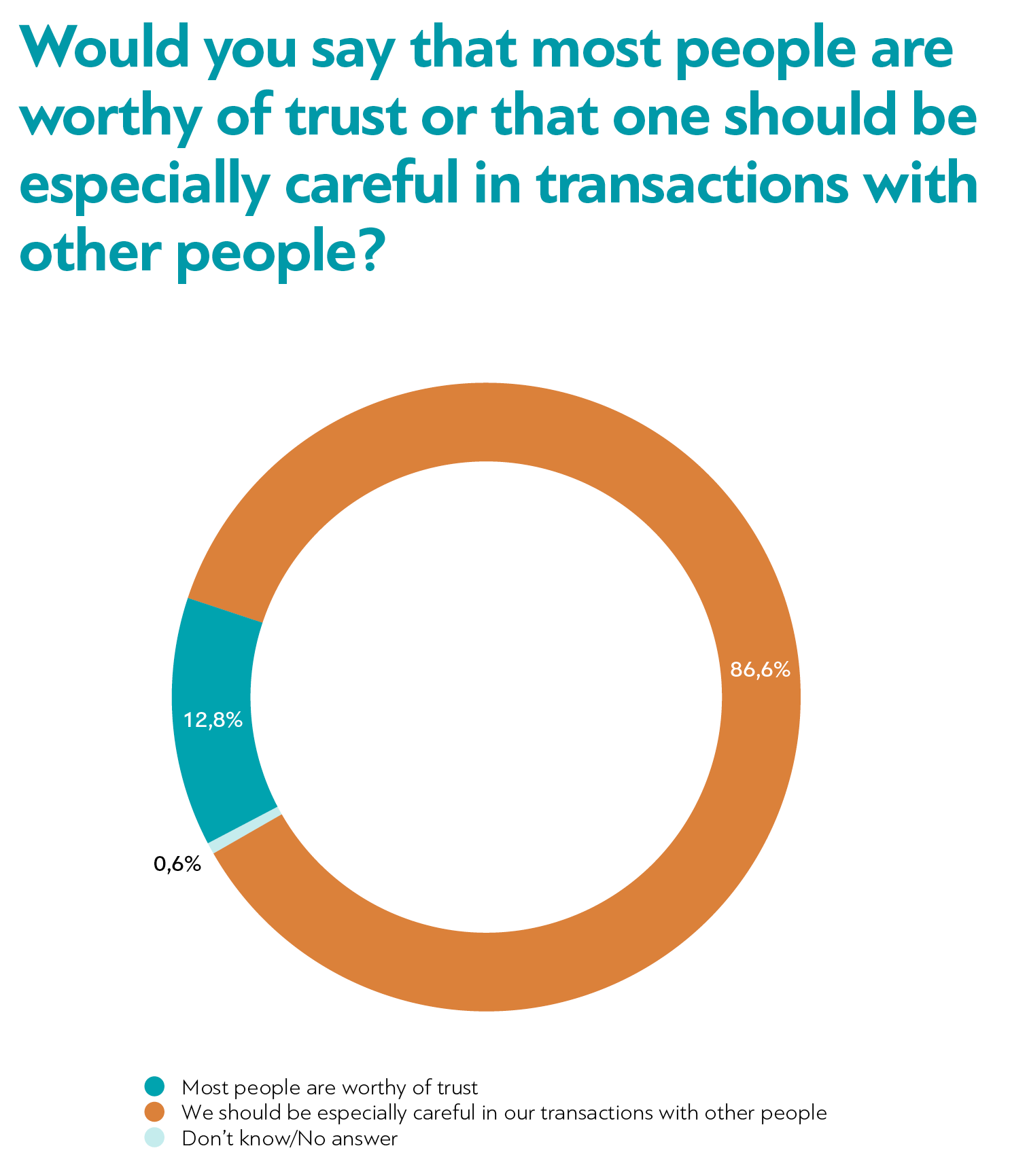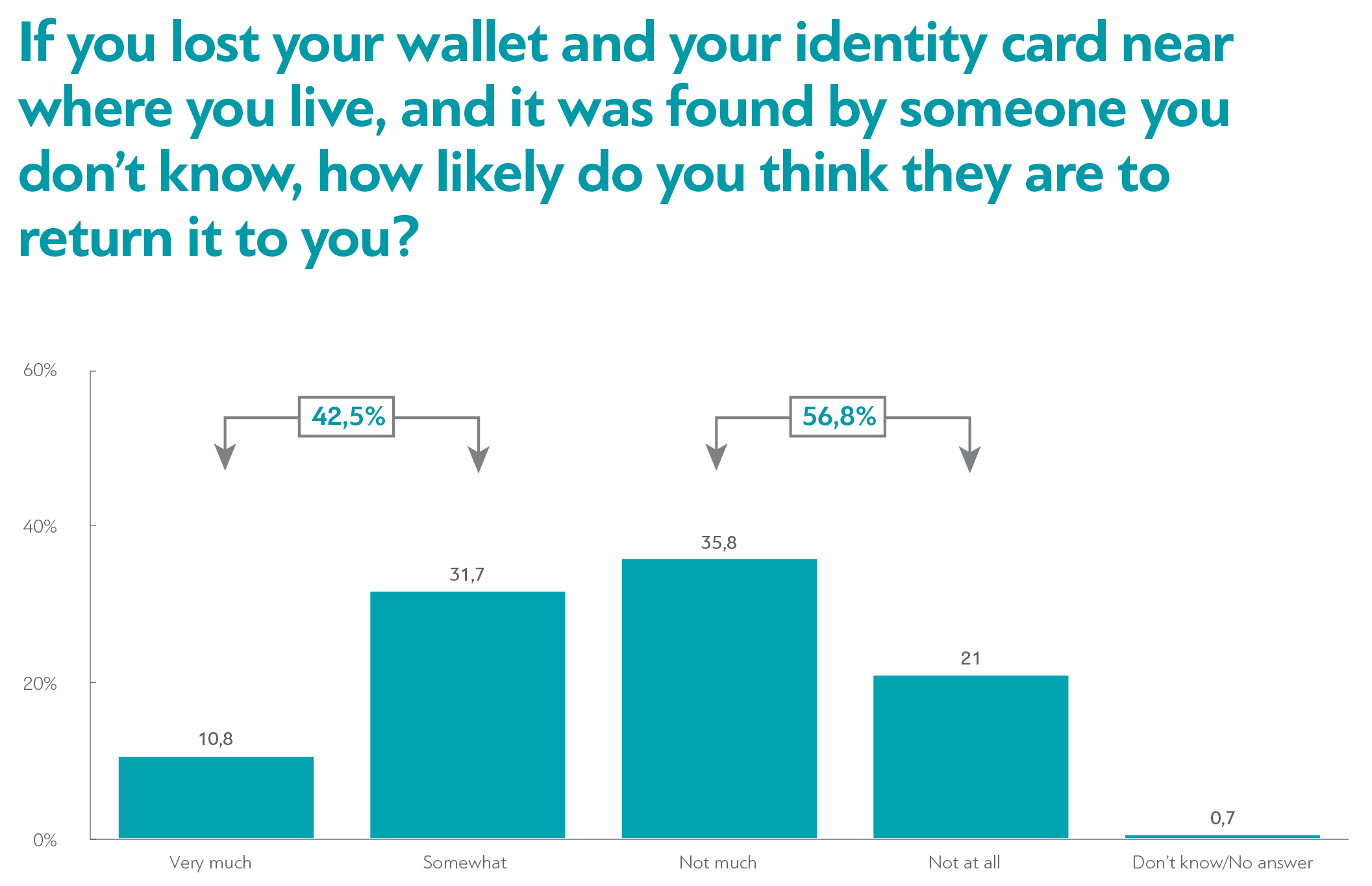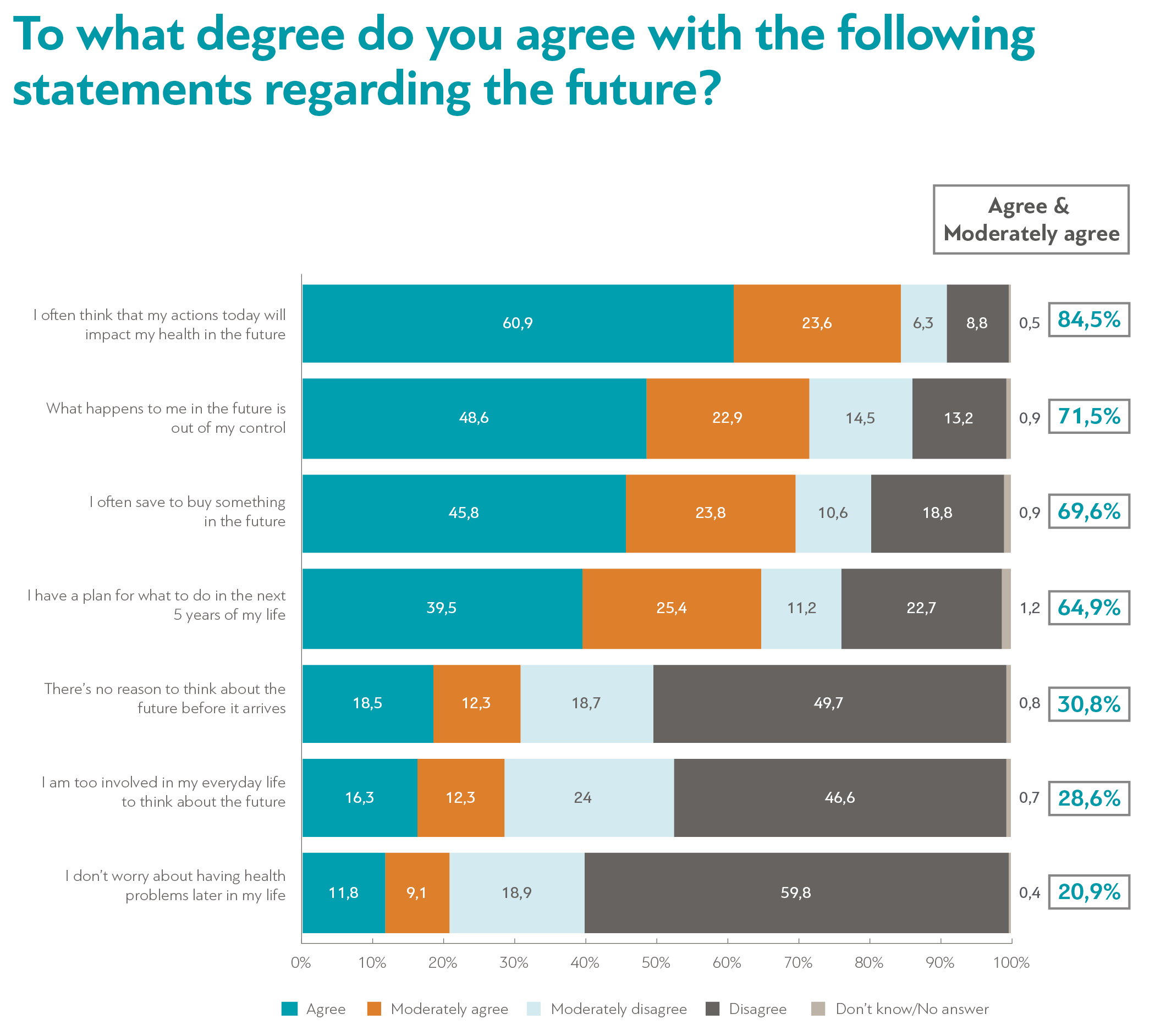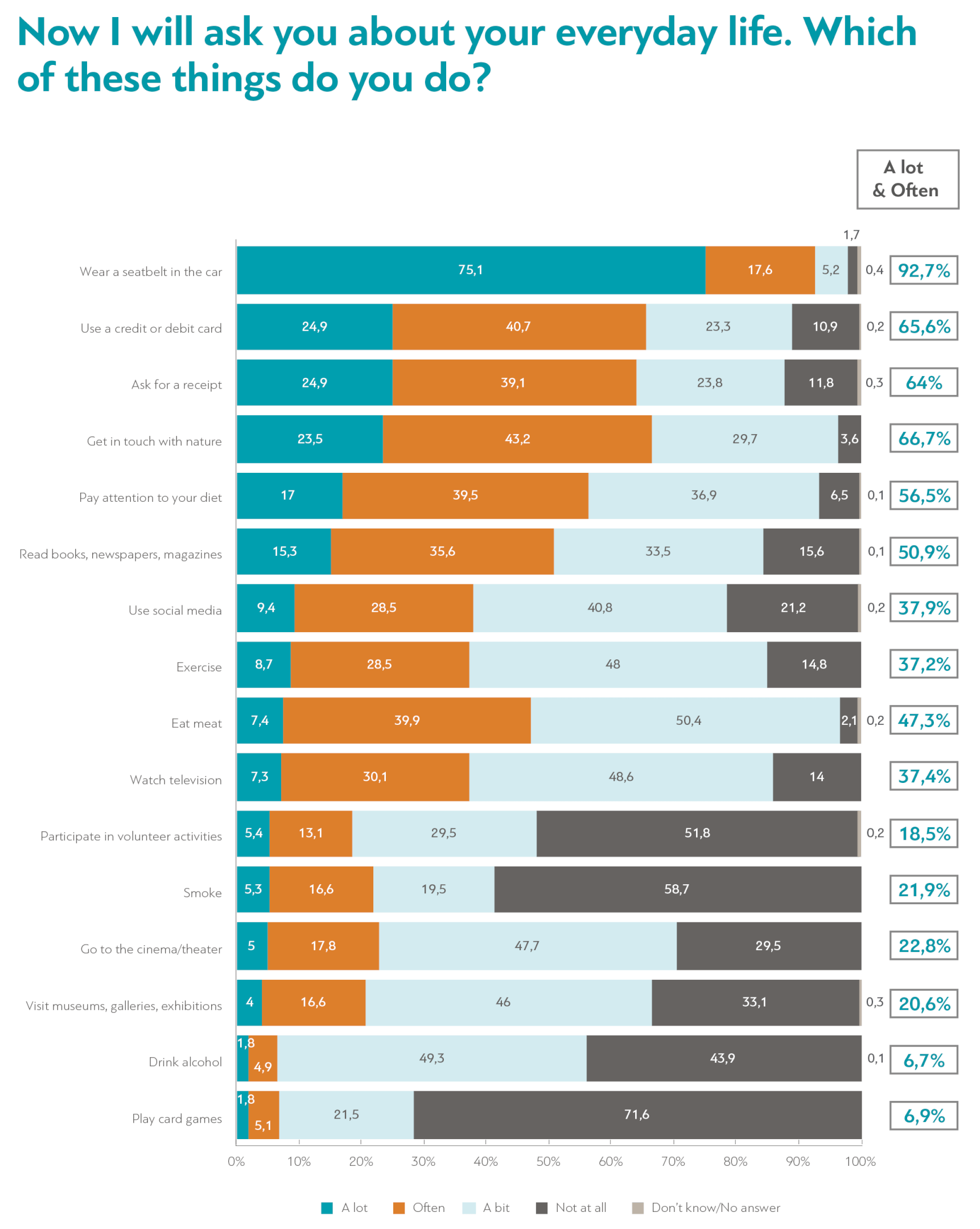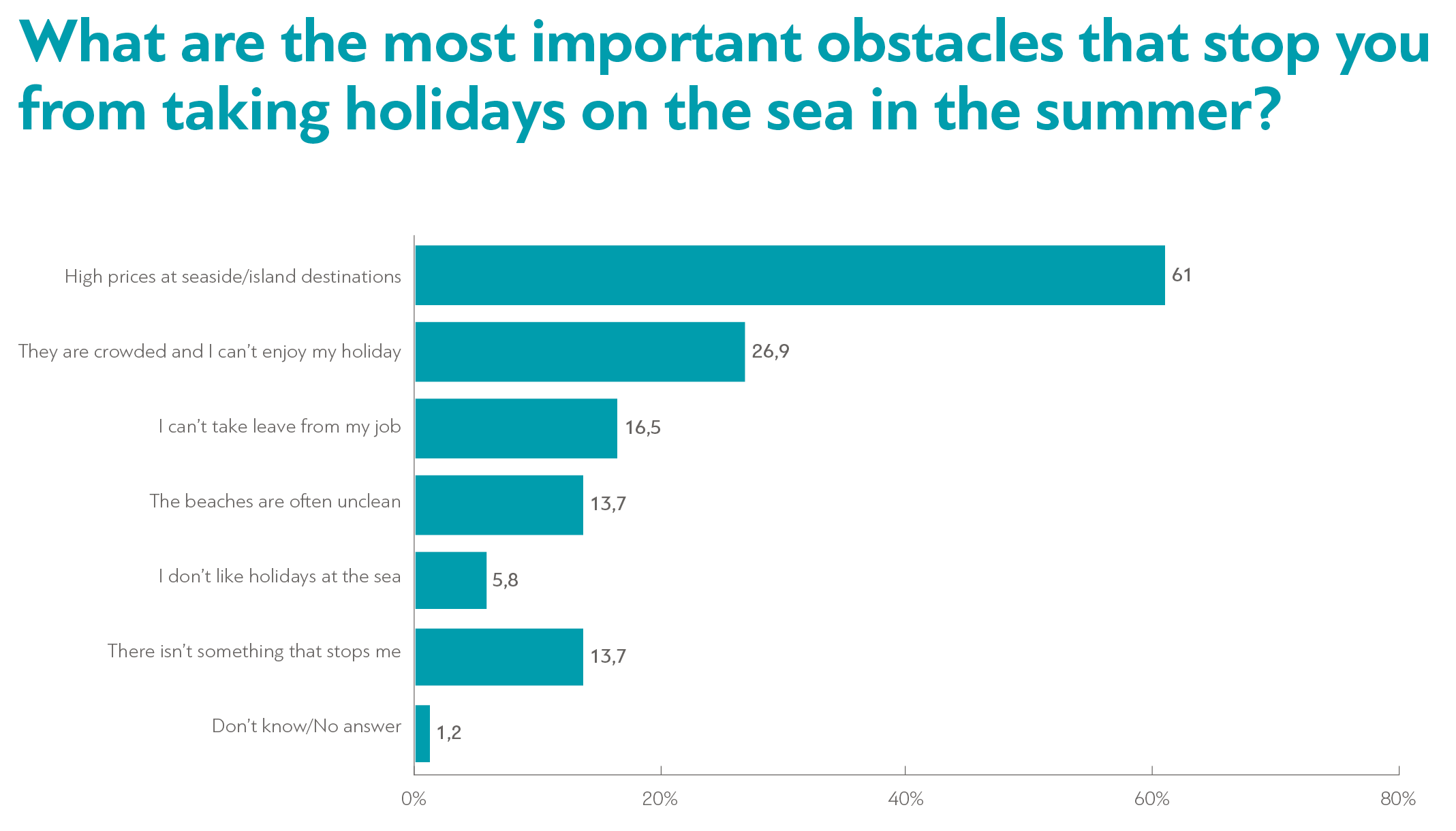"What Greeks Believe" is a large-scale, multi-year research project that has been conducted by diaNEOsis since 2015. Unlike other studies of public opinion in Greece, our ambition is to go below the surface of current events to examine the deeply held beliefs and values of the Greek population. The results reveal correlations between opinions and population groups that can be used in many ways: for example, the data can explain certain habits, help design better and more targeted policies, or simply give an impression of trends in Greek society.
Since the launch of "What Greeks Believe," diaNEOsis has commissioned seven survey waves. The first was conducted in two phases in April and November 2015, followed by survey waves conducted in 2017, 2018, 2020 and 2022. The full data sets from all of these surveys are available to the public free of charge. This sequence makes it possible to compare and track changes in Greek society over time and in response to environmental, economic, and political circumstances. Starting at the middle of the financial crisis in 2015, through the pandemic, and in a fragile geopolitical context, this long-term research initiative allows us to observe how Greeks have changed their opinion on some questions while remaining firm in their answer to others.
The seventh wave of "What Greeks Believe" allows us to offer another round of observations. Due to the large size of the survey, it was conducted by Metron Analysis in three phases. The first phase of telephone and online interviews included a sample of 1,102 people who were surveyed from January 15 to January 30, 2024. The second phase included a sample of 1,104 people surveyed from January 23 to February 6, 2024. The third and final phase included a sample of 1,103 people who were surveyed from January 31 to February 12, 2024. The questions ranged over many topics including climate change, artificial intelligence, immigration, the European Union, the rights of women and same-sex couples, political participation, as well as their feelings about everyday life. You can read all the survey’s findings (in Greek) here:
WHAT GREEKS BELIEVE 2024 PART A (.PDF)
WHAT GREEKS BELIEVE 2024 PART B (.PDF)
WHAT GREEKS BELIEVE 2024 PART C (.PDF)
Threats, climate, and environment
The survey asked respondents to choose the two issues that they consider to be the biggest threats to the future of Greek society. The most common response chosen by nearly 50% of respondents relates to concerns about the national economy (based on total responses provided). This response was chosen at twice the rate measured in December 2019, and almost 10 points higher than February 2022. The second most common response was the demographic problem and the decrease in population that was chosen by 36.7% of respondents as the biggest threat to the future in Greece. Climate change was the third most common response chosen by nearly 20% of respondents.
The answers shifted when the respondents were asked to choose two issues that pose the greatest threats to the future of the entire planet, not only Greek society. Climate change was the first threat selected by nearly 50% of respondents, while 40% chose economic inequality (which ranks second, based on total responses provided).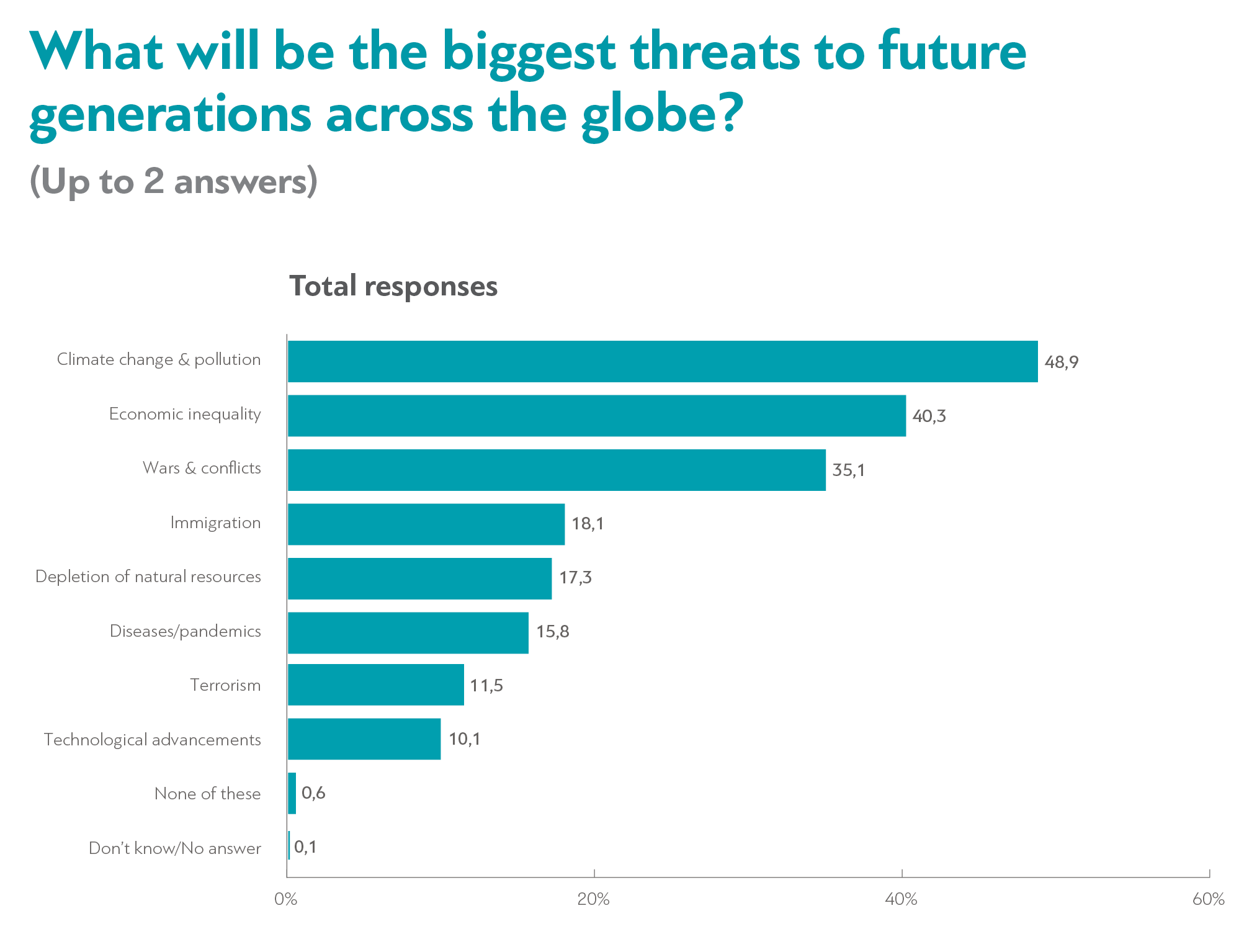
The survey explored issues connected to climate change in greater depth to record the extent to which it is perceived as a significant risk, while also asking whether the respondents are doing something themselves to address the problem.
Most respondents consider climate change a very serious issue: they either state that climate change is already negatively affecting our lives or that it will have a negative effect in the future (43% and 44.6% respectively). There are also those who hold the opposite opinion: around 1 in 10 believe that climate change does not, and will not, affect their lives. The younger and more educated show greater awareness of the immediate effects of climate change.
Who is to blame for climate change and who should manage it? When the survey presented respondents with well-known views and asked them to express their agreement or disagreement, most responded that climate change is a global issue (94.7%), and that a new and stricter framework is needed to deal with it (86.3%). Around 70% feel that their lives and property are threatened. Respondents also understand that it will have an impact on marine life: 9 out of 10 said that climate change impacts the seas and oceans, and 76% believe that coastal countries such as Greece will be more heavily affected.
Nonetheless, some theories and opinions divide the Greeks surveyed: 1 in 2 believe that climate change "is created by rich countries at the expense of the poor," while 1 in 4 believe that climate change is an unsolvable problem.
What are Greeks doing in their daily lives to address climate change and the environment? Most respondents answer that they use energy-saving lightbulbs (93.3%), recycle (92.2%), limit their use of plastic (84.3%) and water (65.5%). The percentage of those who said they participate in coastal cleanups and reforestation has doubled since 2019, but remains significantly lower than other activities (44.7%).
There are two activities that are especially energy-intensive but are enduring habits in Greece: driving cars and eating meat. The changes in these numbers are less impressive than the other activities – 61% said they travel by car less often, and 53.7% said they reduced their meat consumption. In fact, these numbers have remained at the same levels since 2019.
In addition to household habits, the survey examined choices of national governments in relation to climate change. Clearly the most important of these is the transition to "cleaner" forms of energy. To the question "Which natural resources should Greece use for energy production?" the great majority (based on total responses provided) mentioned the sun (83.9%), followed by air (47%) and water (25.1%). Fossil fuels come fourth (18.1%) and appeared to be more popular with people with lower levels of education or who place themselves to the right on the political spectrum.
"The answers on energy production are in line with European policy as well as the national strategy," Panagis Panagiotopoulos, associate professor of Sociology at the National and Kapodistrian University of Athens, says in his supplementary essay (the essay is available in Greek). "They show that the public is highly informed on issues of sustainability, while the myth of underground oil wealth in Greece is not impacting their assessment of the priorities."
Technology and artificial intelligence
In the ranking of threats to the future of Greece, only 3% of respondents chose technological advancements as their first or second choice. However, the concern was clearly greater when they were asked the same question about global threats. Βased on total responses provided, technology was chosen by 10% of respondents, ranking fourth. Developments in technology, including the recent explosion of artificial intelligence, are likely to concern Greeks but are not perceived by all as a threat, or at least not only as a threat.
The survey includes several questions about artificial intelligence, an issue which has occupied an increasing space in public debate during the last two years. When the poll asked respondents whether artificial intelligence makes them feel negatively or positively, more than half reported negative feelings. However, the number of respondents who answered positively (38.7%) was not inconsiderable.
How do they think artificial intelligence will affect their lives? Many believe it will have a positive impact on their health (62.4%), their personal time management (58.5%), the national economy (46.5%), and their entertainment choices (44.5%). However, most believe that artificial intelligence will have a negative impact on the labor market (69.7%), society (53.6%), and their own work (46%).
Which are the social groups leading the optimistic and pessimistic views? Younger people and those with higher levels of education are more positive about the effects of artificial intelligence on their health. In contrast, the 40-64 age group appears more pessimistic. When it comes to the negative effects of artificial intelligence on the labor market, women are more pessimistic than men.
Finally, the survey also asked about the introduction in Greece of new identity cards embedded with an RFID chip that contains biometric data. This is a topic that has recently created public debate and is often associated with conspiracy theories about how technology negatively impacts daily life. At least 8 out of 10 Greeks described the new ID cards as "modernization" based on "European regulations." However, the majority also said that the control of personal data is a significant reason for the creation of the new IDs (56.2%).
Same-sex couples
The survey was completed before the Greek Parliament voted to extend the right to marry, to same-sex couples on February 15, 2024. The survey was in the field between January 15-30 while the public debate was ongoing in the press and on social media. Society was especially polarized around the issue and many public figures used stereotypes and intense expressions to describe its effects. In this context, it is significant that support for marriage between same-sex couples was recorded at its highest point (60%) since the question was first included in 2015. Support for the legal recognition of gender identity was recorded at a similar level (61.4%) and has been steadily increasing since 2016.
However, support for the adoption of children by same-sex couples (35.8%) increased noticeably from 2019, but it was basically the same as recorded in 2022. "Here we see same-sex couples are refused recognition as a conventional family and a restrictive approach to the concept of self-determination," writes Panagis Panagiotopoulos in his essay. "It appears that self-expression is not accepted when it involves other people, in this case, the children who could be adopted."
Women’s rights and sexual harassment
Since 2018, "What Greeks Believe" has included several questions on the rights of women, gender equality at work, and sexual harassment. Almost 1 in 3 said they have been sexually harassed, remaining roughly the same since 2018 when the survey first asked the question. Women report being sexually harassed much more often (37.5%), while about 1 in 5 men also state that they have been sexually harassed.
Since 2022, the survey has included questions about violence against women. Nearly 43% believe that there is an increasing trend of violence against women, while 56.3% said that similar incidents happened in the past but have become more visible. When asked broadly about punishments, 2 out of 3 respondents said that tougher criminal sentences would reduce violence.
The survey also asked respondents for their opinion on several issues related to women's participation in the workforce and gender equality. The majority seem to reject stereotypes. More than 9 in 10 agree that mothers and fathers have equal childcare responsibilities and that women should be free to join the workforce. At least 87% disagree with the view that men are more efficient and dedicated to their work, and 80.7% do not believe men are more capable than women to make important decisions. Most respondents said that work at home has the same value as professional work (76.4%), and a smaller number (but still the majority) agreed that there are no professions specific to women or men (57%). Despite the strong numbers, most perceive that the problem still exists, as the majority disagreed that men and women have access to the same employment opportunities (56.3%).
Not much seems to have changed in relation to these views since these questions were first asked in the survey of 2019. But there are two exceptions: significantly fewer people think the best job for a woman is in the public sector (37.6% in 2024, compared to 49.3% in 2019), and far fewer agree that women avoid taking on positions of responsibility (18% in 2024, against 43.6% in 2019).
Religion
Since its inception in 2015, "What Greeks Believe" has included several questions about religion and the ways people express a relationship with God. In the most recent survey, nearly 8 in 10 said that they believe in God, while 2 out of 10 openly and unequivocally stated that they do not believe. Only 82.9% of respondents said that they speak openly about their faith to others, and a slightly smaller number said they pray when someone falls ill (76.4%).
"It is very impressive that 76.4% said that they pray when someone is ill," comments Panagis Panagiotopoulos in his essay. "It reveals a strong metaphysical and existential need, and even more, a willingness to reveal something so personal. But we should not be carried away and hastily label this group as 'systematically religious'. Nor should we assume that this shows adherence to a certain doctrine or some structured and organized faith. In this respect, the percentage of those who do not pray (22.5%), who said they do not resort to higher powers in any way during times of great distress, is not negligible."
Youth and the demographic problem
As shown above, Greeks consider the demographic problem and the shrinking population a significant threat to the future of the country – it comes second in the ranking, based on total responses provided. The survey explores this issue with several questions about young people and the obstacles that prevent or delay the creation of a family.
The survey asked all respondents to identify the most important problems facing young people in Greece. The most significant was low wages (41.1%), followed by unemployment (39.6%) and the uncertainty about the future of employment and insurance (36.2%). Interestingly, the order was reversed in the corresponding responses from 2022: unemployment was first (66.5%) in 2022, while low wages fell by 4 points and yet moved from second place to first. Other issues listed as problems specific to young people are mental health (23.4%), housing (13.2%) and loneliness (6.8%).
The survey includes a standard set of questions about the number of children that a respondent had at the time of the survey or would like to have in the future. They reported having an average of 1.4 children, which is very close to the national fertility rate in official statistics and lower than the 2.1 children that is needed for population replacement. However, when the survey turned to their desire to have children, the answers were somewhat maximalist. Overall, the respondents said they would like to have 2.6 children, which is much higher than the population replacement rate of 2.1 children per woman.
Why is there a gap? Why aren't young people having the number of kids they would like? A related question about obstacles to creating a family suggests that economic difficulty and insecurity is the number one obstacle (80.2%). Nearly 1 in 3 mentioned the lack of relevant infrastructure, such as nurseries (29.4% in 2024, increasing from 21% in 2019), and 1 in 4 pointed to the difficulty of combining motherhood and work life. There are similar numbers who believe that "couples today have other priorities" (23.7%), as well as those who believe that new couples are having fewer children because they are worried about raising children in an uncertain world (24.4%).
Political participation and trust in institutions
The issues of political participation and trust in institutions regularly occupy public debate, especially when there are high rates of abstention in elections. Most respondents (43.1%) said they feel close to a party but do not actively support it. Only 8% said they actively support a party.
"There is a significant sense of detachment in the way many Greeks relate with politics," notes the Metron Analysis results report (the report is available in Greek). "In the current wave of research, and similar to the results of previous waves, the great majority take a distance either from the party they choose or from the electoral process as a whole (34.7% declared that they only vote in the elections, and 7.8% said they are not engaged/don't even vote)."
Should the country's problems be blamed on the governments we elect? In the relevant question, (based on total responses) the government and politicians are blamed first (52.7%), followed by the unions/special interests (45.7%). However, the percentage of those who said that "the choices of the citizens" are themselves to blame (44.5%) is not negligible, while the answer that "the global powers are to blame" was mentioned by 30% of respondents.
In the same section of the survey, respondents were asked to give their views on a list of values and rights. Almost half agreed that the rights of minorities are protected in Greece (46.9%). Panagis Panagiotopoulos underlines that this result "should not be read as the unambiguous recognition of the rule of law but possibly a sign of discontent among those who feel they do not belong to a minority group and disapprove." Though 42.4% said that "citizens enjoy all the freedoms that characterize a democracy," this measure has been decreasing significantly from 65.1% in 2015 and 55% in 2019. Only 30.3% said that "citizens live in a safe environment."
Finally, views regarding the judicial system ("treats all citizens as equal" – 24.7%) and meritocracy ("the worthy are recognized and rewarded" – 18.5%) remained at approximately the same low levels since 2015.
Finally, the table on trust in institutions shows interesting results. The family earned the highest degree of trust (4.3 out of 5) and the lowest ratings on the table (1.9) were given to non-governmental organizations, political parties, trade unions and the mass media – which earned even less trust than social media (2.3).
Feelings about everyday life
The survey asks respondents to reflect on their feelings about everyday life. The results were similar to three previous waves in which respondents highlighted negative emotions. Half of respondents mentioned insecurity (49.9%), followed by disappointment (44.3%) and anger (29.7%). Optimism was the first positive emotion to appear on the list and at nearly the same level as 2022, but 8 points lower than the level recorded in 2019. As has been seen in other surveys, women tend to choose negative emotions more often than men.
The survey also asked respondents to rate their personal situation in various areas on a scale from 1 (very negative) to 10 (very positive). They gave the highest score (7.7 on average) to their "relationship with others" and gave the lowest score (5.5) to their finances. Respondents also reported that their physical health is better than their mental health: physical health received a score of 7.1, while mental health scored 6.6.
Democracy in Greece
A question in honor of the 50th anniversary of the restoration of democracy in Greece asked the respondents to comment on the quality of democracy in 2024. Fewer than 1 in 3 (27.4%) said that democracy in Greece is "strong," but if one adds those who said it is "neither strong nor weak" (37.2%) then one finds that a majority perceives the democracy is at least "not weak."
The youngest group of respondents aged 25-39 were the least likely to recognize Greek democracy as "strong" (only 1 in 10). Half said that democracy is "neither strong nor weak" while 4 in 10 consider the country to be "weak" – the highest percentage among all age groups. The views of older ages balanced the overall result.
The survey also asked respondents how they think Greece will evolve over the next ten years. The majority agree that the country will have more immigrants (83.3%) and that citizens will become more tolerant of diversity (63.3%). At the same time, far fewer believe that the standard of living will converge with the European average (34%), or that Greece will be an economically strong country (26.1%), or that it will "function on merit" (23.2%). Yet it is also noteworthy that more than 4 in 10 believe that Greece will increase its international influence within a decade. In simple words, there is a part of the population that considers it possible for the country to increase its international influence without functioning meritoriously, without increasing its standard of living, and without a strong economy.
Greece and the European Union
When the first wave of research was carried out in 2015, Greece's relationship with the European Union was a matter of public debate to a much greater extent than it is in 2024. Today, having passed the darkest days of the economic crisis, the pandemic, but amid geopolitical turmoil and warfare, the image of the EU and the debate surrounding the European Union are substantially different. The 2024 survey found that 64.8% of Greeks consider the country's participation in the EU to be positive.
But what about the future of the European Union? Many Greeks (36.8%) believe that the EU will break up in the coming years as countries leave the union. A nearly equal number (35.9%) said that the EU will continue to exist for the next decade in the form it has today.
The picture was not always the same. In 2016, in the wake of the referendum on Brexit, half of respondents thought the EU would break up, and only 8.6% thought the EU would remain in its current form in ten years. Eight years later, each of these perspectives is held by around 36% of the population. There has also been a fall in the number of people who believe the EU will break apart: from 27.9% in 2016 to 10.3% in 2024.
Despite the impressive reversal, it seems that the EU still has a long way to go in order to dispel the doubts of many citizens about its survival. Nearly 1 in 3 consider it a "declining" world power, while far fewer (16.7%) consider it a "rising" power. Meanwhile, 36.4% consider it unreliable.
Nonetheless, Greeks seem to be asking for "more Europe" in many areas of their lives. The survey asked respondents about the issues on which they would like the EU to play a more active role. A large majority (over 70%) wants the EU to have a more active role in all areas: health and the environment (83.8%), defense (78.3%), education (77.3%), as well as the economy, immigration, and foreign policy. A majority of citizens (65%) also agree with the enlargement of the EU with new member states.
However, many Greeks do not seem to know enough about what Europe is doing. The survey contains two questions about the Recovery Fund, including one question asking respondents if they can recognize it by description without giving its common name. Only 35.9% state that they are aware of "an EU funding program to overcome the problems of the recession and other effects of Covid-19." It is certainly an interesting result as Greece will benefit the most in terms of GDP from all countries in the EU, and these resources correspond to a doubling of the already significant European resources flowing into the country during the next few years. Of those who are aware of the Recovery Fund, nearly half consider it "very" or "extremely important" for the country's development, while 32.2% consider it "moderately important."
Greece and the world
What do Greeks think about individual countries, inside and outside the European family? Who do they consider their best allies? How do they rate foreign leaders? How do they think the war in the Middle East will impact their lives?
There were no major reversals since 2022 in the list of allies considered the best for Greece. France remains the first country that Greeks consider an ally (65%), followed by the USA (44.2%) and Israel (13.5%). Nevertheless, France fell by more than 7 points, while the USA was rated almost twice higher than in March 2022 (and much higher than in February of the same year when the same question was asked before and after the outbreak of war in Ukraine). Israel lost significant popularity as an ally of Greece (more than 6 points). Russia, Germany, and China follow in the list with single-digit percentages (total responses).
How much of a role do international leaders play in these perceptions? The survey asked respondents for their opinion on a few figures from the international stage. The President of France, Emmanuel Macron, following the position of France as the most important ally, earned the most favorable opinion (63%).
The President of the European Commission, Ursula von der Leyen, followed in second place but with a much lower favorable opinion (33.4%). The scores for the then President of the USA (Joe Biden – 33.2%) and the President of Russia (Vladimir Putin – 31.4%) both increased compared to March 2022. However, Putin remains 10 points lower than 2019 – while he is recovering from the much lower figures recorded in 2022 after the start of the war in Ukraine, the damage to his image remains. Former German Chancellor Angela Merkel earned 29.2% favorable opinion, about the same level as current Chancellor Olaf Scholz (26.8%).
Chinese President Xi Jinping is eighth in popularity (26.2%), but almost 1 in 3 said they have not heard of him. In fact, this happened even though China was mentioned by 67% of the sample as "strong" and by 58.7% as a country "on the rise."
Former US President Donald Trump had a relatively low favorable rating of 23% (note the survey was completed nine months before he was re-elected). Yet his rating in early 2024 was more than double his rating in December 2019.
Similarly, the Prime Minister of Israel Benjamin Netanyahu comes tenth in favorable opinion (21%). It is worth noting that Netanyahu's low score is not accompanied, at least in the context of this research, by an increase in anti-Semitism. In another question exploring prejudice against various groups that has been asked since 2016, the word "Jew" registers the highest positive score (52.3%) of those who associate it with something good. Of course, this result does not exclude enduring prejudices and anti-Semitism that continue to be present in a very large part of the population.
It’s no surprise that Turkey's President Recep Tayyip Erdogan is favorable with only 16.1% of respondents. However, just two years ago, that figure was less than half (5.7%). The final position was held by then UK Prime Minister Rishi Sunak, but it is worth noting that those who had never heard of him (21.3%) were more than those who had a favorable opinion (12.6%).
Finally, this year's survey includes a question about the impact of the war in the Middle East. The respondents said that the war will increase the risk of terror attacks in Europe (80.4%), that it will impact the Greek economy (77.1%), as well as their daily life (58.2%). Fewer worried about terror attacks in Greece (44.1%), and even fewer about war spreading to Greece (29.9%).
Immigration and inclusion
What do people think about immigrants? What do they think should be done to manage migration flows? Are there circumstances in which immigration can improve conditions, or where will it cause problems?
The survey explores whether the population connects immigration keywords with something good or bad. Notably, 40.4% of respondents associate the word "immigrant" with something good, and an even larger number (56.2%) reported associating the word "refugees" with something good.
In any case, it seems that prejudices remain strong. Regarding the country's stance on the management of migration flows, around 70% believe that Greece should adopt a stricter position.
People appear to hold contradictory opinions. A large majority (71.2%) believe that immigrants who enter the country illegally should be transferred to the country of their choice – apparently, they mean a wealthy European country rather than their country of origin. Much fewer – but still a majority (54.9%) – said that immigrants should be deported immediately. The percentage of those who believe that immigrants should remain in holding centers until they are transferred to their country is also a large majority (69.3%). However, there are just as many (65.3%) who believe that asylum should be granted quickly to those who are entitled to it. A majority (57.8%) also believe that immigrants who enter the country illegally should be integrated into Greek society, immediately and under conditions. The proposal to integrate migrants as quickly as possible into Greek society had the lowest level of agreement (34.3%).
Opinions about legal immigrants, or more likely those who entered illegally but were later legalized, have a different tone. For example, 7 out of 10 agree that children of legal immigrants who are born in Greece should receive Greek citizenship immediately. Yet nearly half call for a stricter procedure for granting citizenship.
How do immigrants impact local society? More than half of respondents recognized that the smooth integration of immigrants has positive effects for demographics, the economy, social insurance funds, and the modernization of the country. Of course, all these areas concern, to some extent, economic activity.
Furthermore, 62.7% agree that Greece should accept immigrants according to the needs of its economy. To a lesser extent, respondents answered that the integration of immigrants will contribute to social cohesion (40.6%). In other words, it appears that despite the demand for a stricter attitude towards immigrants who enter illegally, much of the population acknowledges the positive effects of the integration of immigrants into the economy – and to some extent, they want it.
In the same context, most respondents saw problems created by migrants leaving Greece, including 7 out of 10 who said this created economic problems in agriculture, tourism, and the provision of services at home. A similar response calls for incentives and a culture that could attract new workers where there are gaps.
Are all immigrants the same? The survey records prejudices about immigrants and stereotypes that vary depending on their origin. The most positive opinions were about immigrants from Balkan countries (65.8%), perhaps because they are the most familiar. There were also strongly positive opinions about immigrants from Latin or Central America (58.8%), Africa (51.9%) and Asia (50.4%). Immigrants from Middle Eastern countries were given the least favorable opinion (40%). "This is in line with the negative connotations of the word Muslim," notes the Metron Analysis report (the report is availabe in Greek), "which is broadly associated in the results with something ‘bad’ (61.6%) more often than something ‘good’ (31.3%)."
Ideology and policy
The survey includes questions that explore the political affiliation of the respondents. The respondents were first asked to place themselves in an ideological group, choosing the characterization that best expresses them. In this context, the group of social democrats was the largest with 20.5% of respondents, and appearing significantly stronger than the corresponding percentage in 2022 (14.1%), and higher than the level of 2020 (17.7%). The liberal group was at nearly the same level (19.3%) and remains relatively stable since 2016. The socialism group was third (13.8%), reaching the highest percentage since 2016 but also showing relative stability over time.
Did the Greeks therefore become more social democratic in two years? A few more questions explored aspects of these ideological positions. For example, when respondents were asked to evaluate some words related to the economy, the most popular are "evaluation" (88.9% equate it with something "good"), "competitiveness" (82.7%) and "reforms" (78.5%). However, looking at the results in the previous waves of "What Greeks Believe," we noticed a clear decline in the positive views about "privatizations" (falling from 57.8% in 2019 to 47.2% in 2022 and 43% in 2024) as well as for "banks" (falling from 45% in 2016 it fell to 32.9% in 2024).
Another related question about state interventions in the economy has been included in the survey since 2015, revealing some changes in beliefs. Fewer now think the state intervenes too much in the economy ("the state prevents the private sector from creating wealth and jobs") falling from 51% in 2018 to 33.4% in 2024. Conversely, those who said that the state does not intervene enough ("allowing the private sector to act recklessly") surpassed those who believe the state intervenes too much for the first time since 2015, rising to 60.9% in 2024.
The results from the question about taxation and the welfare state are nearly split, with a narrow preference for low taxation "even if it means less state assistance" (45.6%) versus high taxation accompanied by "welfare protections for all" (42.6%). In 2022, although the order of the options was the same, the difference between the two responses was much greater (54.4% versus 31.5%).
Public administration and health system
The survey includes questions about specific aspects of policy in health, education, public administration, labor, insurance, and welfare policy.
It is interesting to see what citizens consider crucial to the development of the country. The most popular answer (32.3%) was "faster administration of justice," followed by transparency in the operation of the state and institutions (greatly increased from 19.1% in 2022 to 27.3% in 2024) and the reduction of taxes and social insurance contributions (25.9%).
How do citizens see the state and public administration? The most positive opinions were given to the national network of KEP Centers for Citizen Services (85.2%), followed by the online services portal "gov.gr" (82%). Firefighting services ranked third with 79.6%. Urban planning (35.2%), insurance funds (33.6%) and the business licensing service (33.7%) had low positive ratings but showed a significant increase of more than 6 points from the previous survey in 2022.
Conversely, the health system showed a significant decrease in positive opinions by more than 10 points: from 45.9% in 2022 to 32.2% in 2024. When asked what they would prefer in case of emergency, the survey respondents split between private (46.4%) and public (51.2%) hospitals, though the latter had a clear lead. The trend is reversed when asked about selecting a doctor: 58.7% would choose to go to a private doctor rather than a public doctor.
The respondents also revealed that they are particularly aware of their own health. The majority (58.1%) said they have preventive check-ups once a year, and if one adds this percentage to those who declare that they do preventive examinations even more often, the findings suggest that about 4 out of 5 Greeks have check-ups at least once a year.
Views on education
The issue of public and private education was at the center of public debate during the survey period when a new, much-discussed law was introduced to allow private, non-profit universities to operate beginning in 2025. The basic structures of public education, i.e. schools and universities, continued to be evaluated positively by a minority of 4 in 10 respondents. However, subsequent questions revealed that the majority would choose public education rather than private institutions (55.2% for public against 43.5% for private). This picture has been relatively steady over time since 2015. In the survey of 2016, private education took the lead (52.1%, against 46.8% for public), and in 2022 the two were evenly split (49.1% and 48.8%).
The survey asked respondents for their perspective on non-state universities. Respondents appear to believe that private universities will give more options to young people who want to study (65.4%). However, approximately the same number agreed that "it will come at the expense of financially weaker students due to tuition fees" (63.5%) and that "people will study who do not meet the criteria." Fewer think that it will "relieve the budget of families whose children study abroad" (59.9%) or that private universities "will help to upgrade public ones" (50.7%). From the more detailed data, it seems that agreement with these propositions differs significantly depending on the economic situation of the respondents, with those earning lower incomes being more concerned about the impact of private universities.
Work, pensions, and benefits
This year's survey introduced questions related to technical skills and, by extension, technical education. It shows that public opinion has largely overcome the associated stereotypes. For example, a minority of respondents (32.3%) agreed that technical occupations do not improve social status like a university degree. A similar minority of respondents (31.8%) said that technical professions are a "necessary evil" for young people who failed national exams. In contrast, a very large majority (93.2%) agreed that technical occupations "are a good career solution for jobs that the market demands."
The survey asked respondents for the second time since 2022 whether they would migrate outside Greece under specific circumstances. The percentage of those who said they would migrate abroad if they could find a better job remained roughly the same when compared to the previous study: 57.9% in 2022 and 60.7% in 2024. However, an interesting longitudinal development concerns the preference for job security and stability. The percentage of those who prefer stability remains in the majority but has steadily and gradually decreased over the last 9 years from 64.2% in 2015 to 53.2% in 2024. Those who said they are willing to risk instability in their work life has increased significantly from 34.5% in 2015 to 44.3%.
What does the Greek population think about the retirement age? More than 90% of respondents said that someone should be able to retire before 65 – lower than the 67-year-old threshold that applies today. This very large majority is divided between those who favor retirement before 60 (45.4%) and those who place the limit between 61 and 65 (46.1%).
However, when we leave behind the ideal scenario to ask respondents about their own life expectations, the answers are quite pessimistic: only half believe they will ever get a pension. Only 1 in 4 said they are not sure, while 1 in 5 said that they do not think they will ever retire. The results show that younger working ages are far more pessimistic. In the age group 25-39, the percentage of those who state unequivocally that they will never get a pension is 16 points higher than the general population.
In addition to pensions and salaries, the extraordinary circumstances of recent years (pandemic, energy crisis, etc.) were accompanied by the creation of temporary state benefits and other forms of assistance known as "passes" targeted toward specific activities or parts of the population. These new types of assistance were added to benefits that were already in place. From this point of view, it is interesting that 4 out of 10 said that they have received some kind of social benefit or material assistance from the state in the last year. In fact, nearly 40% of them said that they continue to receive benefits.
Trust in other people
What do Greeks say is important to them? How do people think about their lives? How does trust work? How willing are respondents to take risks? What behaviors do these deeper perceptions lead to?
"Justice" was the most frequently mentioned social value (40.2% though it fell at least 13 points from the survey results in 2019 and 2022. Next came "freedom" (32.1%, also significantly reduced), "meritocracy" (31.7%, with an increase) and "respect" (27.6%) which was added as a choice in this particular wave. The least mentioned values (with single-digit percentages) were consistency (8.9%) and hard work (8.5%).
Low rates of trust are one of the most consistent and discussed findings from previous waves of "What Greeks Believe," as in other well-known publications such as the World Values Survey and the Eurobarometer. There are consistently very few (12.8%) who say that "most people are trustworthy." On the contrary, the great majority (86.6%) said that "we must be especially careful in our transactions with other people."
The survey aimed to detect levels of trust with some additional indirect questions. For example, it emerged that 42.5% believe it is more or less likely that a stranger will return a lost wallet. In another similar question that does not concern a stranger but a neighbor, a majority (55.6%) state that they would trust him with the keys to their house in an hour of need. Admittedly, those who said they are willing to show trust in practice are much higher than those who said other people are trustworthy.
The future in relation to the present
Another aspect of behavior that was explored in the 2024 survey was about plans for their future in relation to the present. The majority seem to be thinking about the future to some extent, especially in terms of health, since 84.5% said they often think about how their actions today will affect their health in the future. Moreover, 69.6% said they are saving to buy things in the future, and 64.9% said they have a plan for the next five years. Men state that they plan more often than women.
A large majority (71.5%) admit that what happens in the future is beyond our control, as well as quite a few who agree with the view that "there is no reason to think about the future before it arrives" (30.8%), or that they are too busy with their daily lives to think about the future (28.6%). Only 1 in 5 said "I don’t worry about having health problems later in my life."
How does the prevalence of long-term perspectives work in practice? An obvious example is savings, since far more described efforts to save money in 2024 than in the previous survey two years before: 42.6% compared to 26.5%.
Risk perception and behaviors
Another driving force behind daily habits is the way people view risk. The survey singles out several behaviors that involve a lower or higher risk. The majority said they are likely to share an unpopular opinion in a social setting (63.1%). Significantly fewer (42.1%) would lend a friend an amount equal to their salary, while even fewer (22.1%) would work in a job where they would only be paid a percentage of sales. Only 17.3% said they were likely or somewhat likely to illegally download a program to their computer. Finally, nearly 1 in 5 said they are likely to eat expired food "that still looks okay."
In addition, the survey aims to detect aspects of everyday life in Greece. Looking at the related results, we can see that 92.7% said they wear their seat belt in the car, 65.6% use a credit or debit card, 66.7% get in touch with nature, while a majority of 56.5% said they pay attention to their diet. A small majority declared that they only consume "a little" meat (50.4%), and a majority said that they do not participate at all in volunteer activities (51.8%).
Summer holidays
Finally, the survey asks respondents to reflect on the barriers preventing them from taking a holiday at a seaside destination. Since last year, there has been a robust public debate in Greece about high prices and the sustainability of tourist destinations after a summer with tensions around access to public beaches. Unsurprisingly, respondents reported that high prices in tourist destinations (61%) was the number one barrier to their holidays. However, more than 1 in 4 Greeks surveyed also mentioned crowding as an obstacle, possibly related to the saturation of some destinations.

